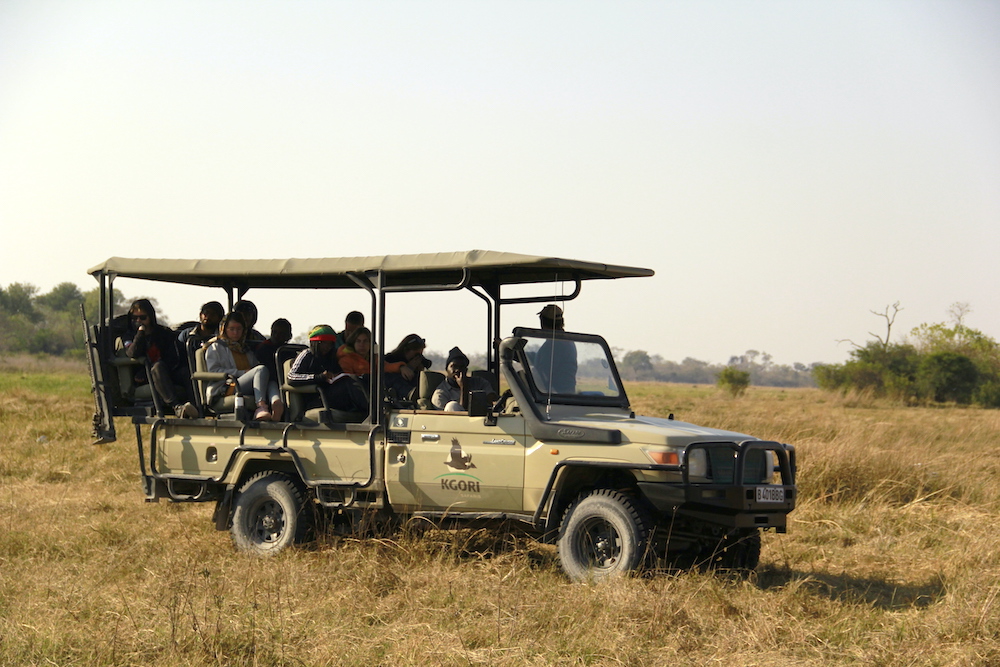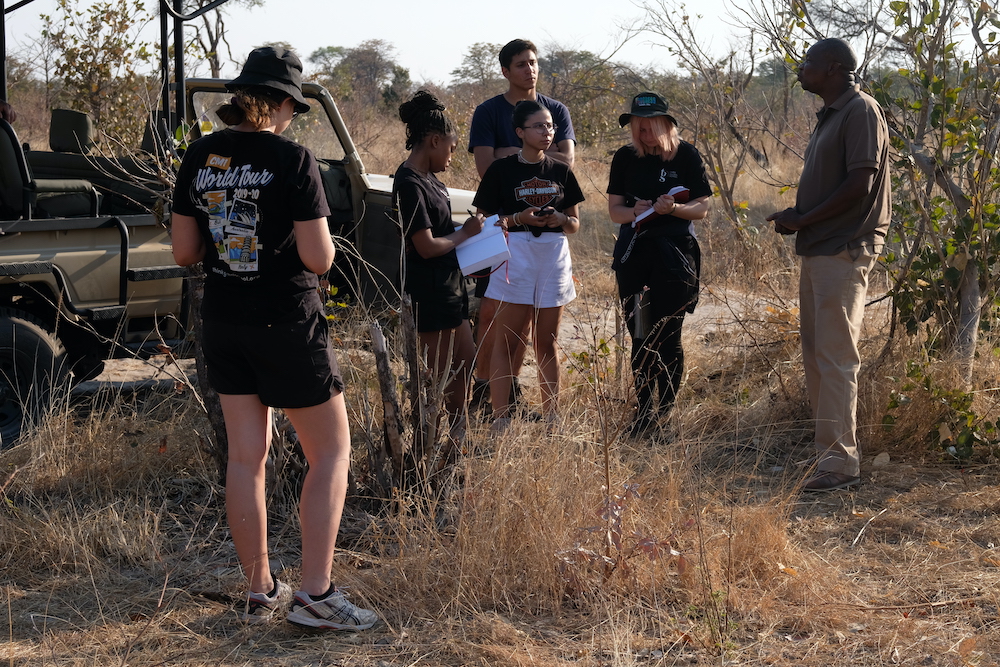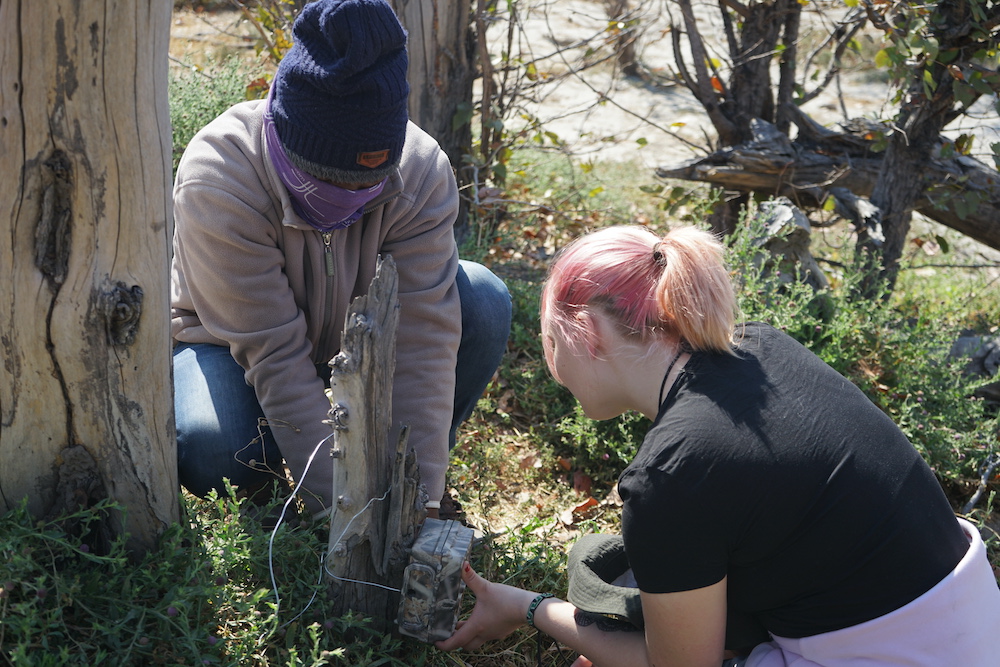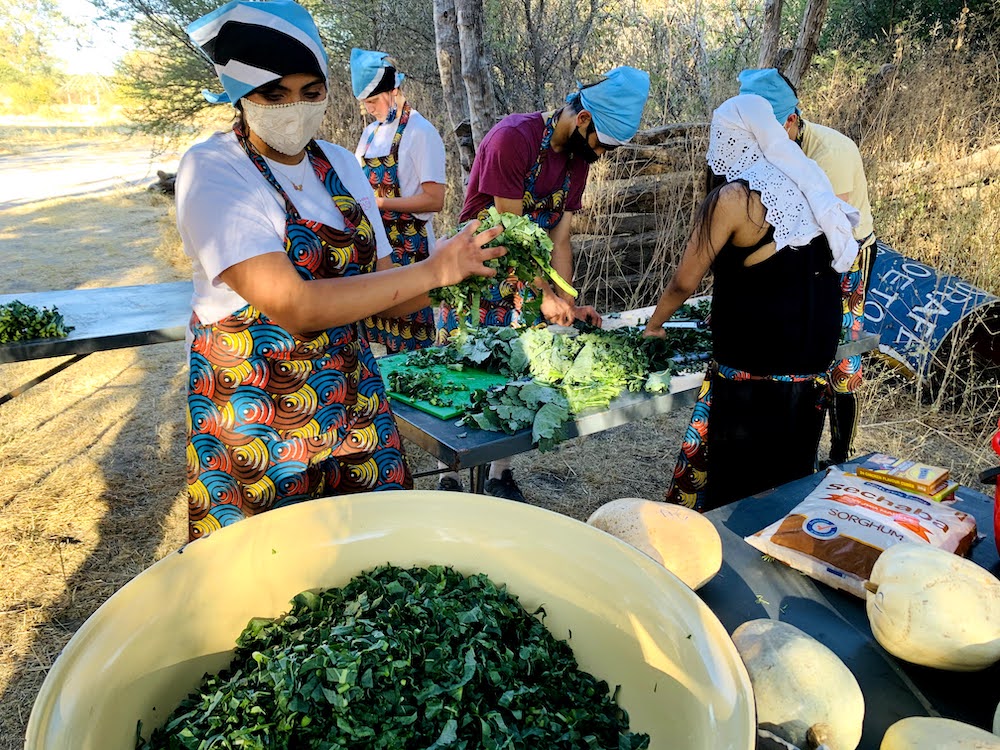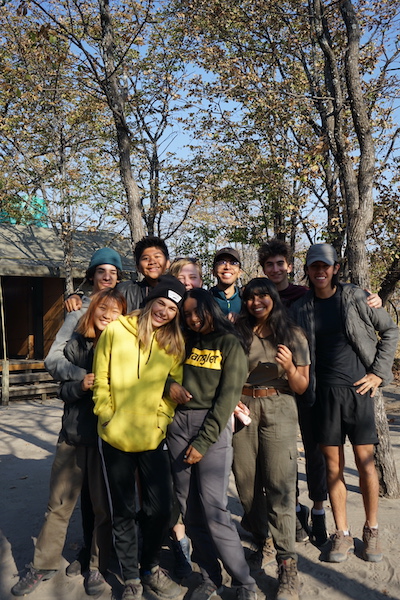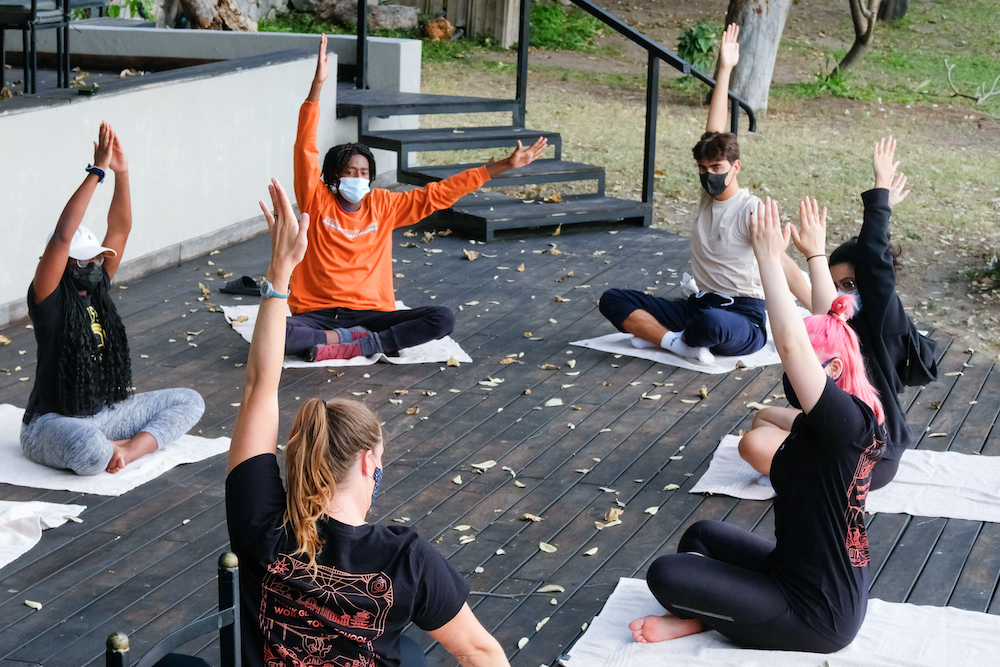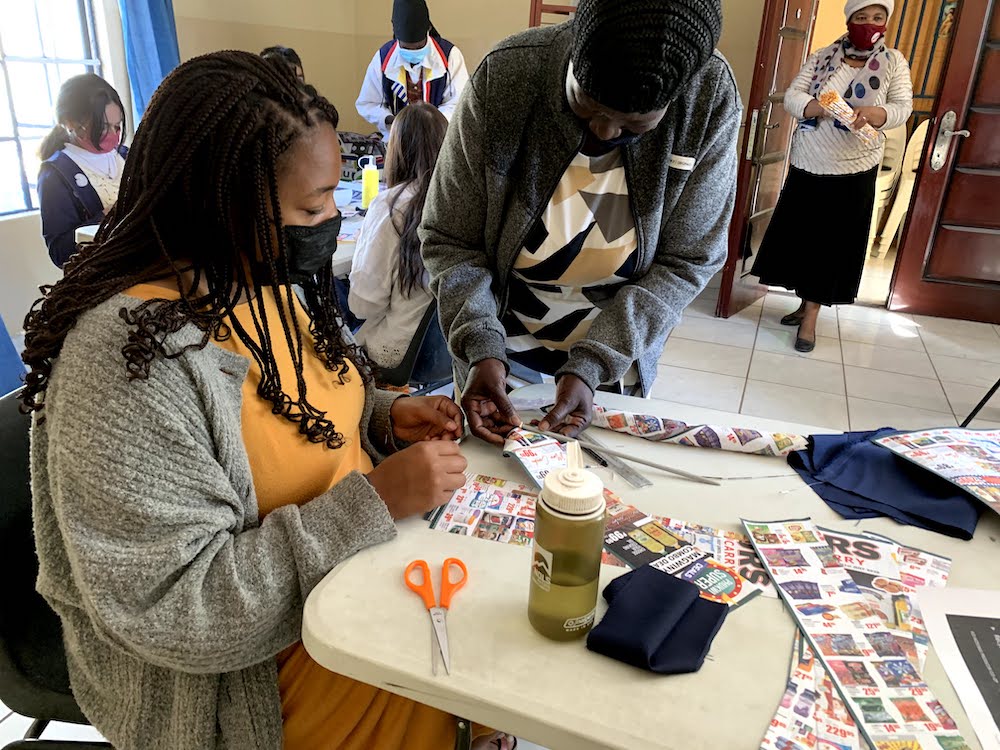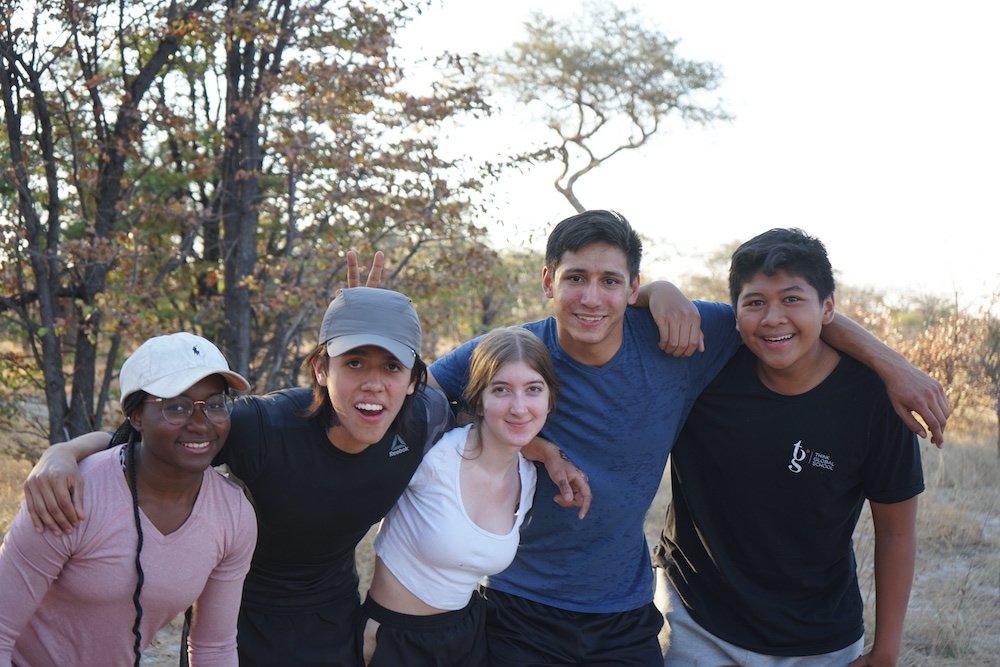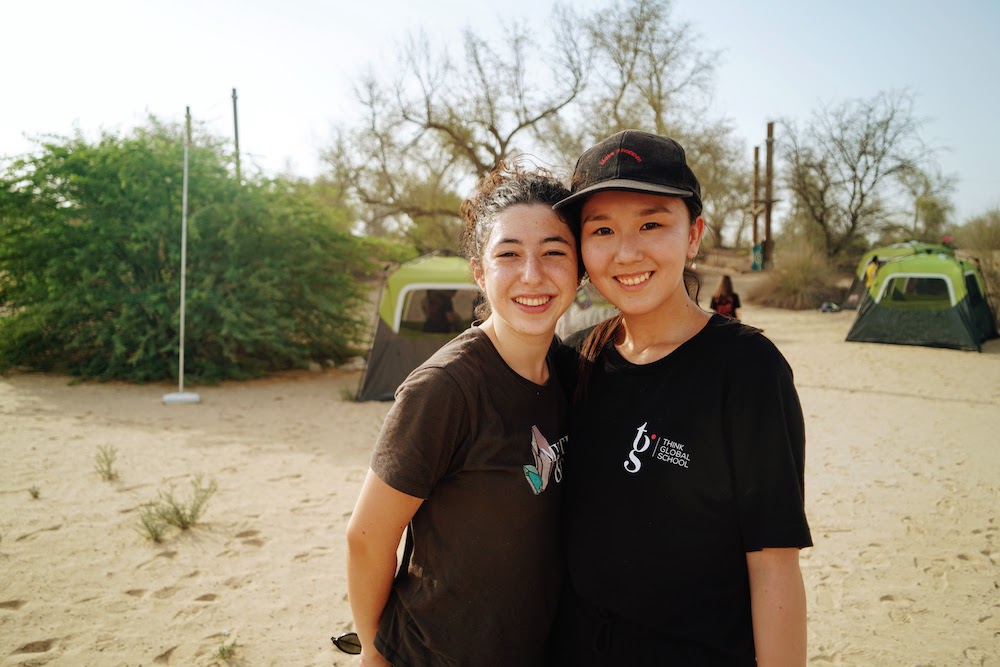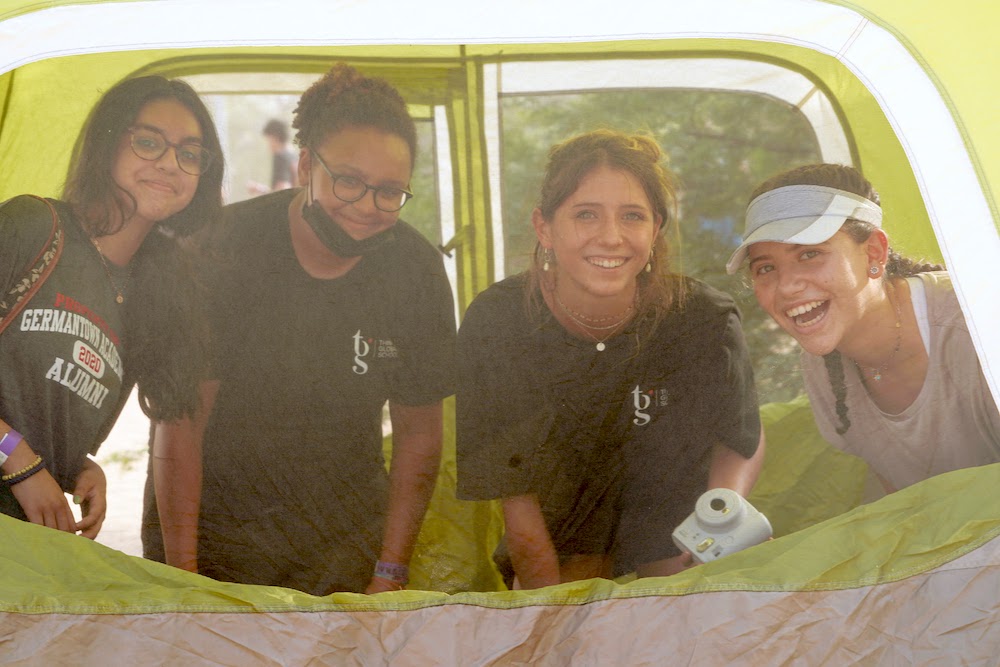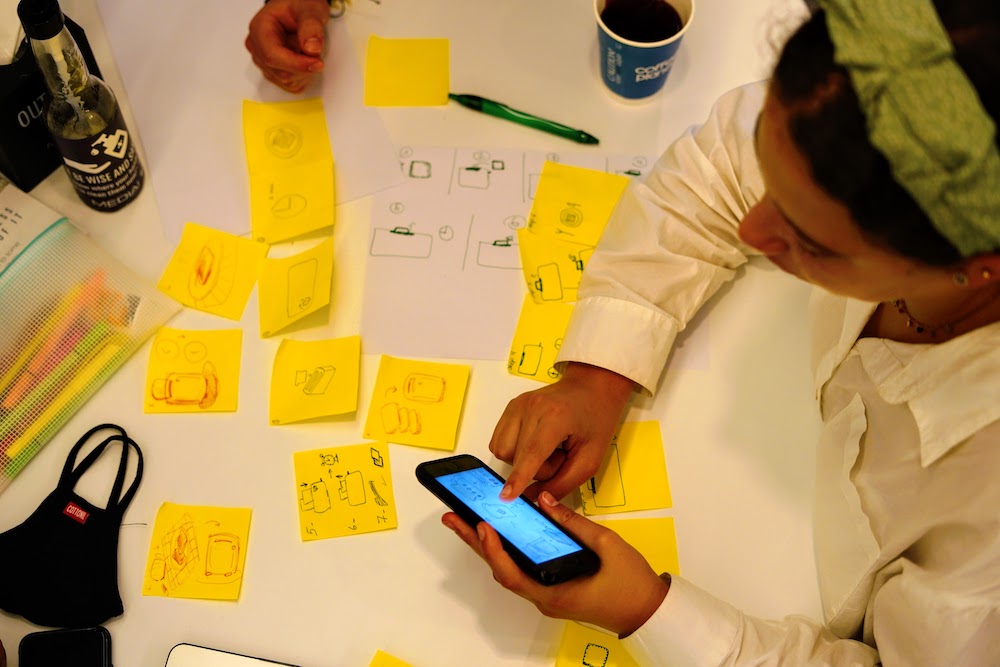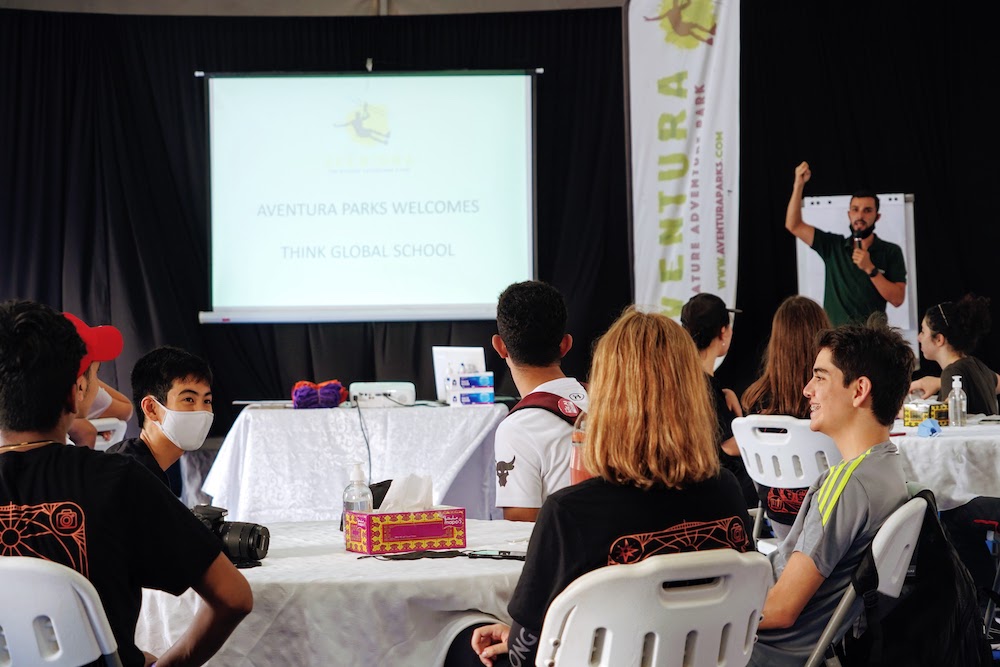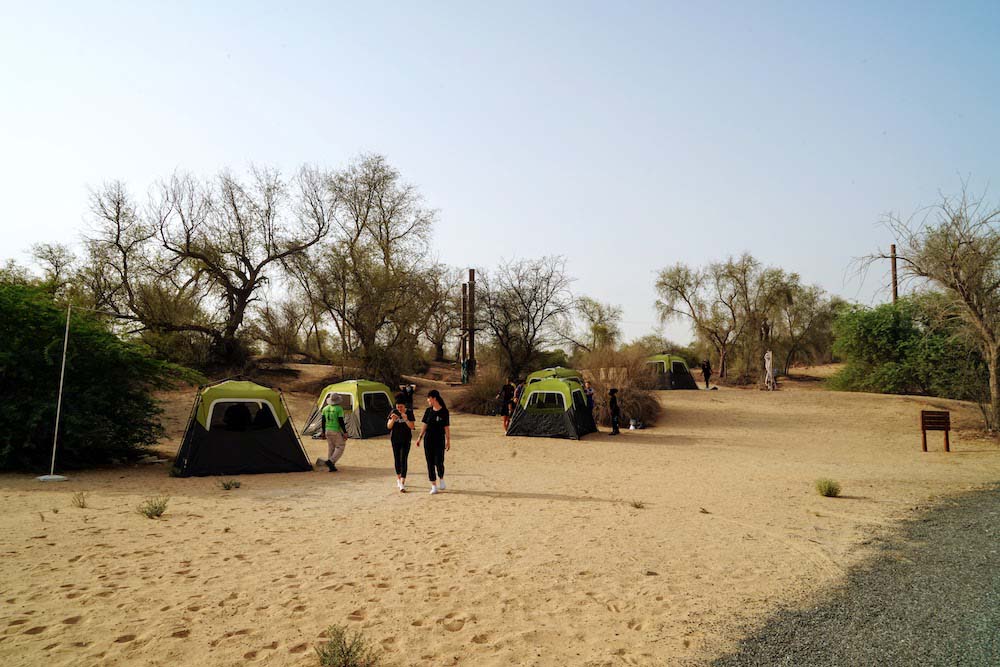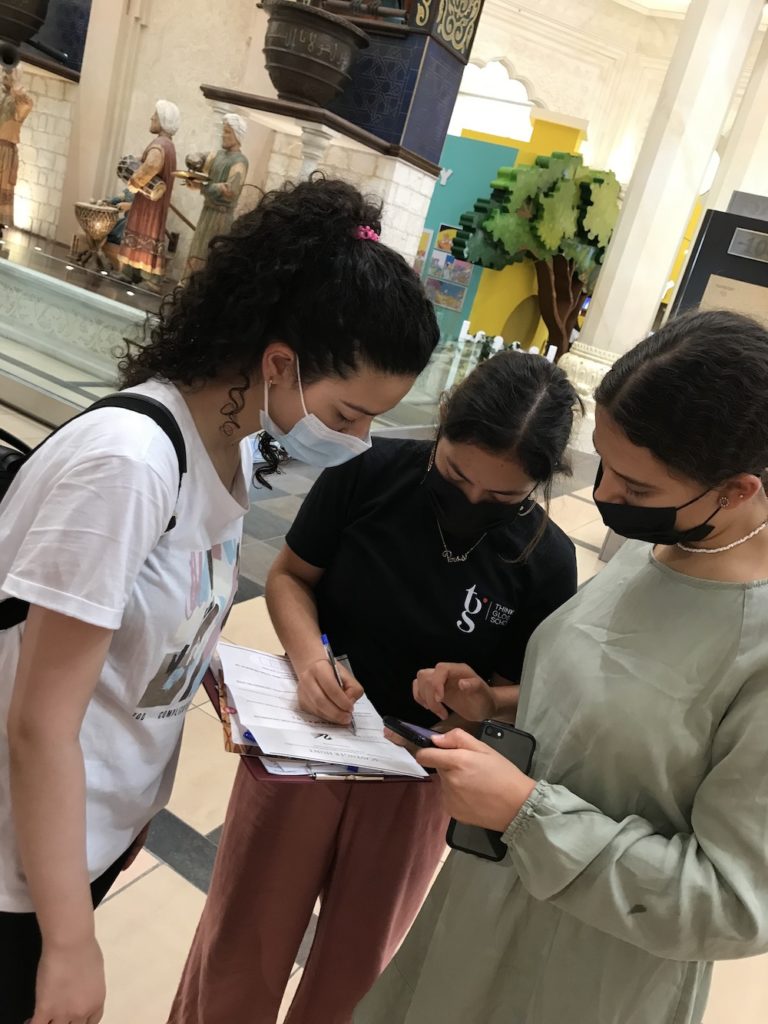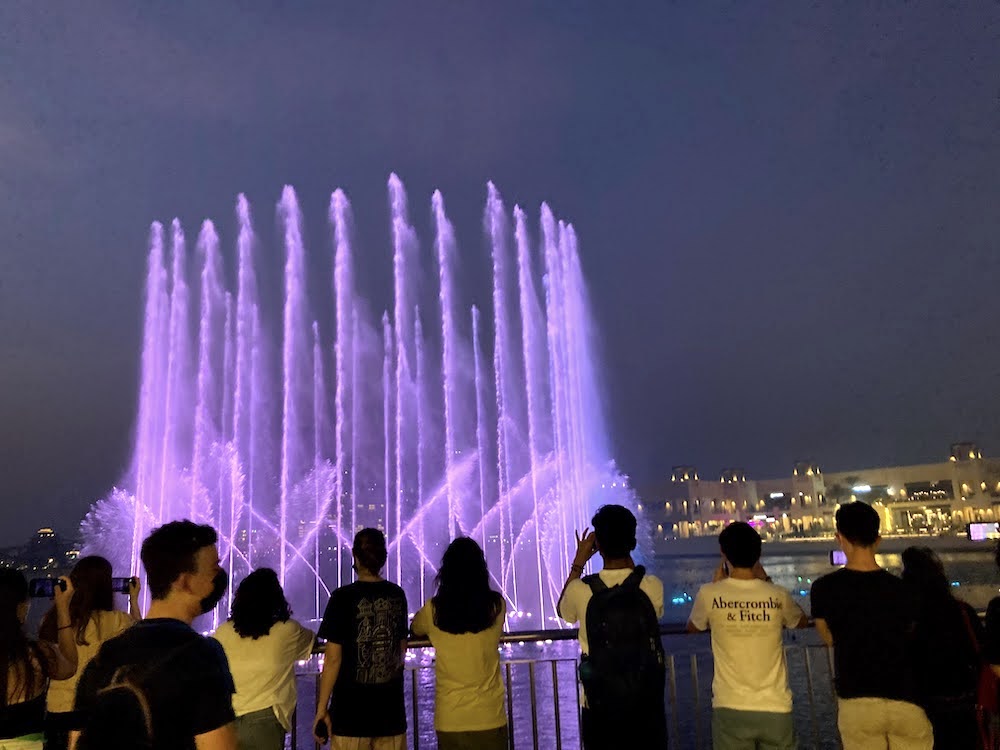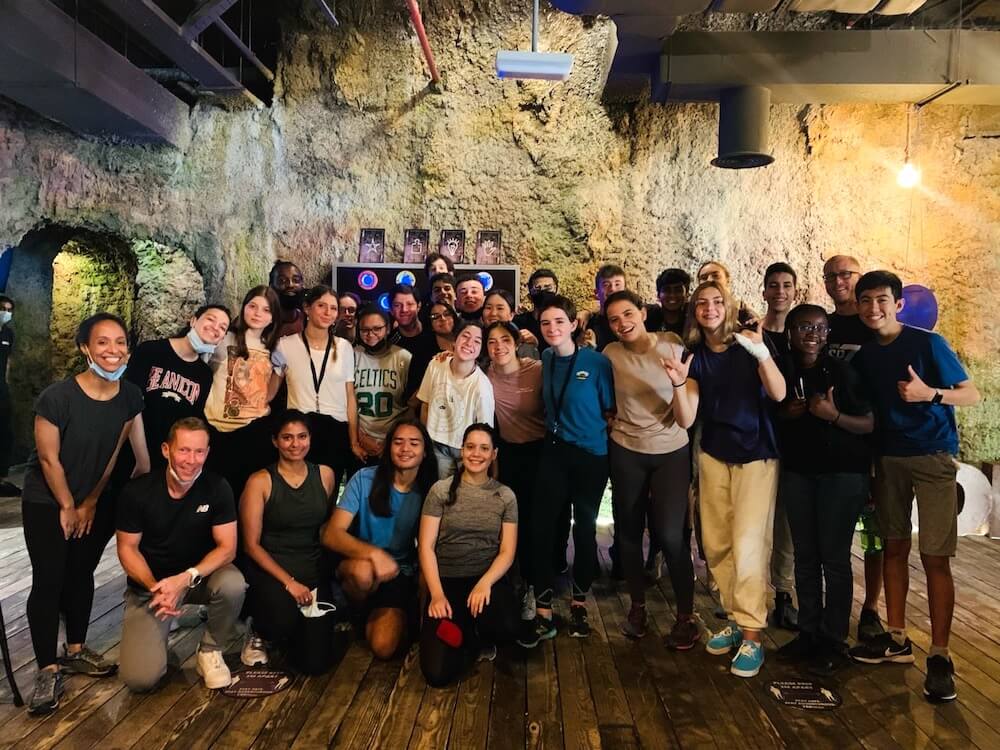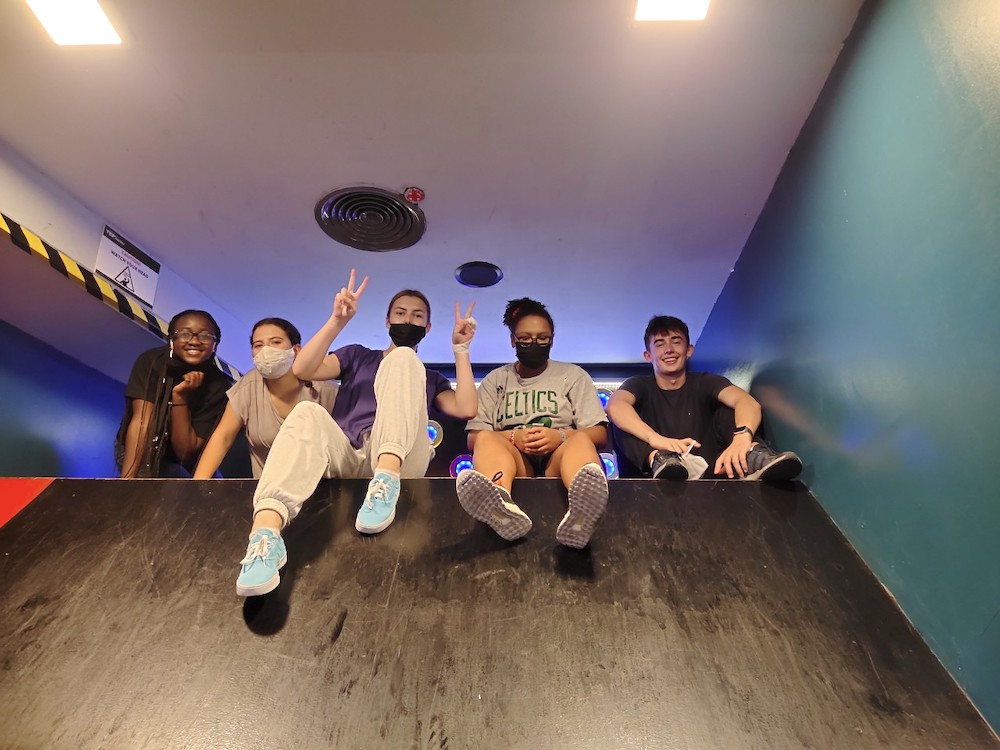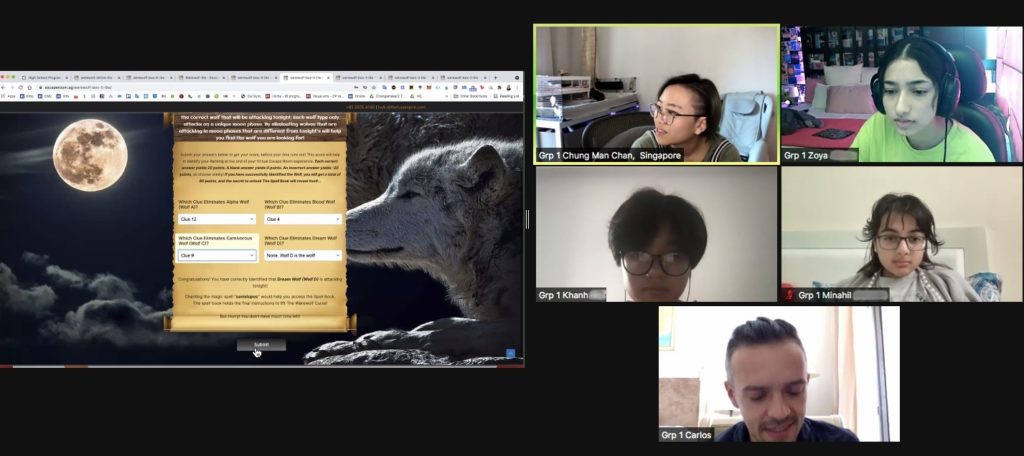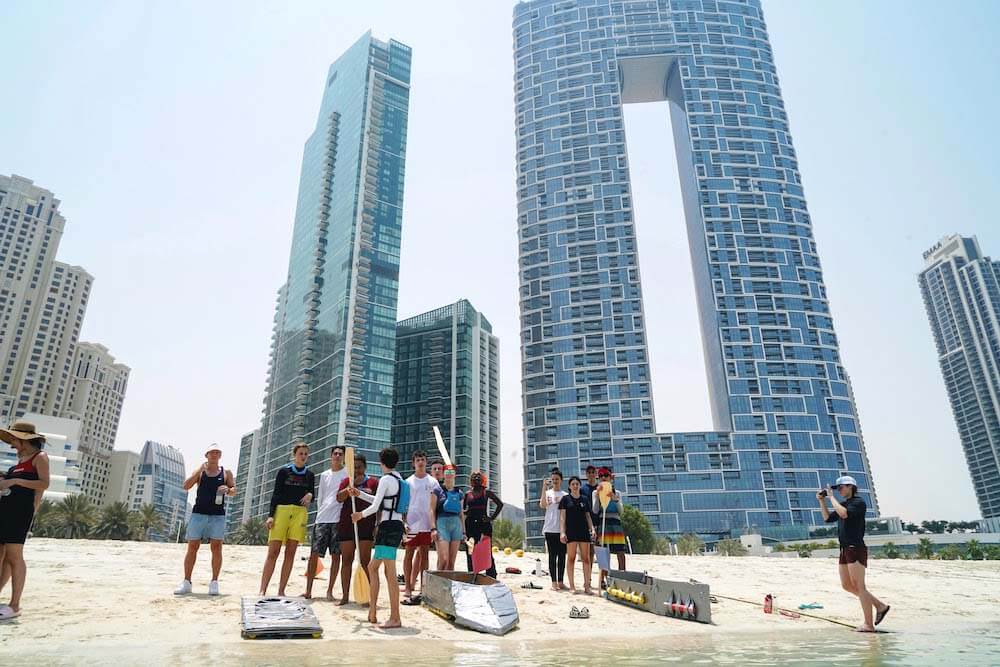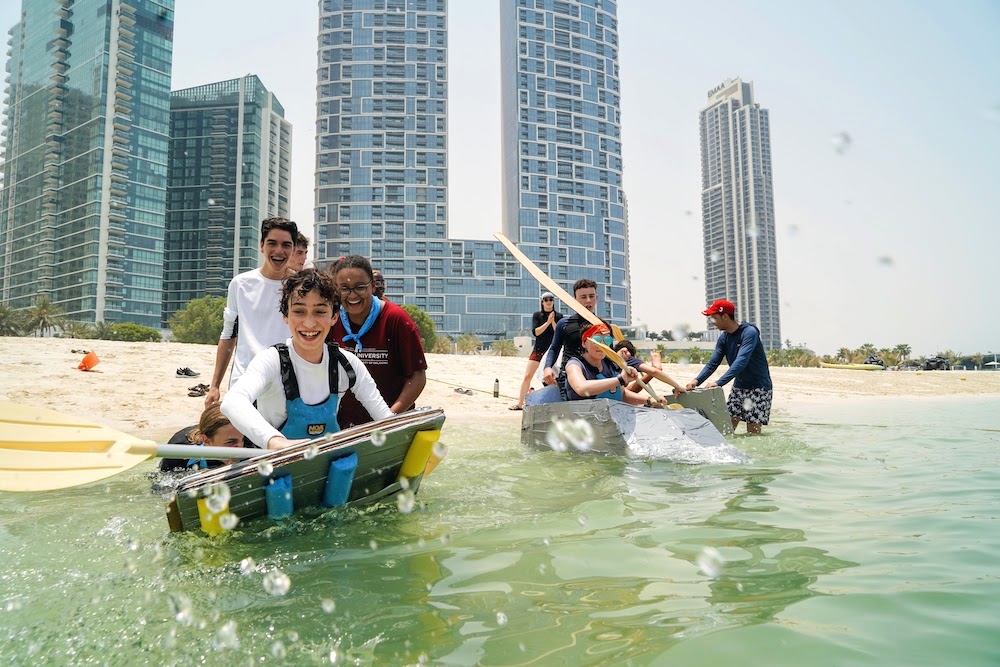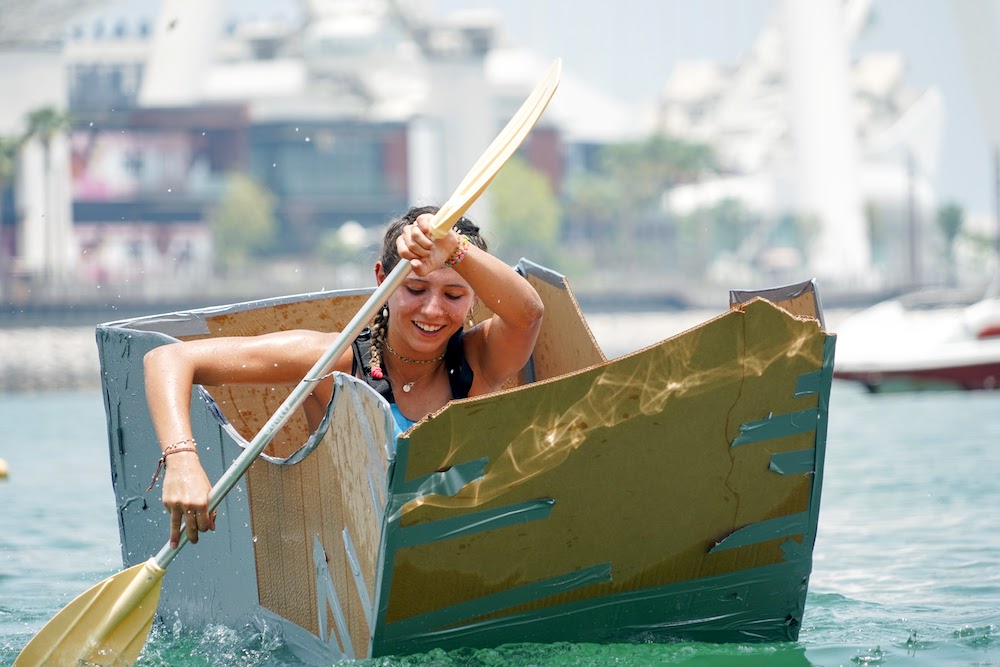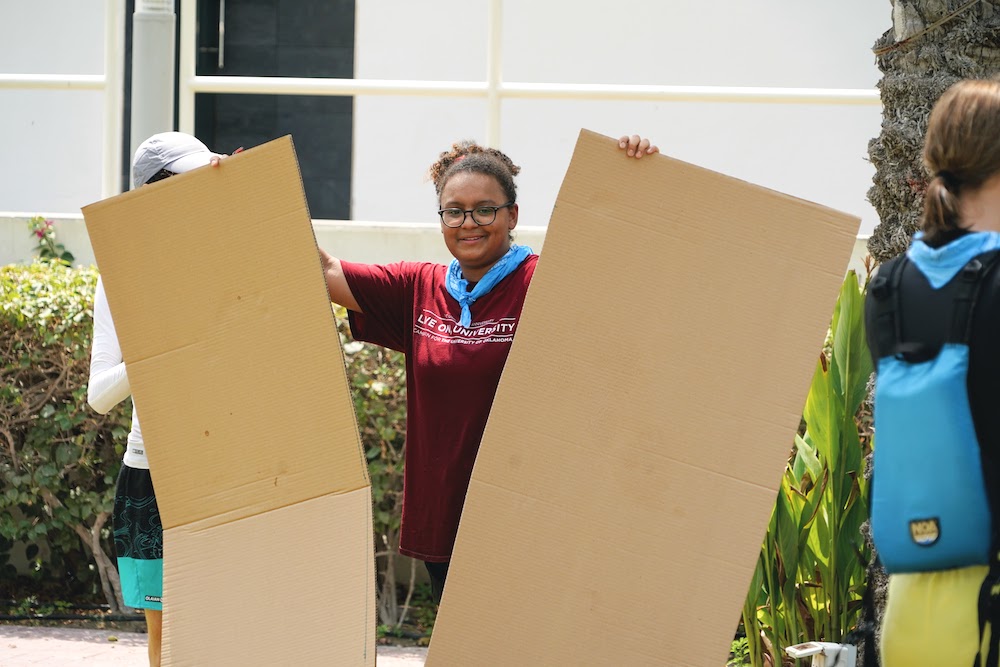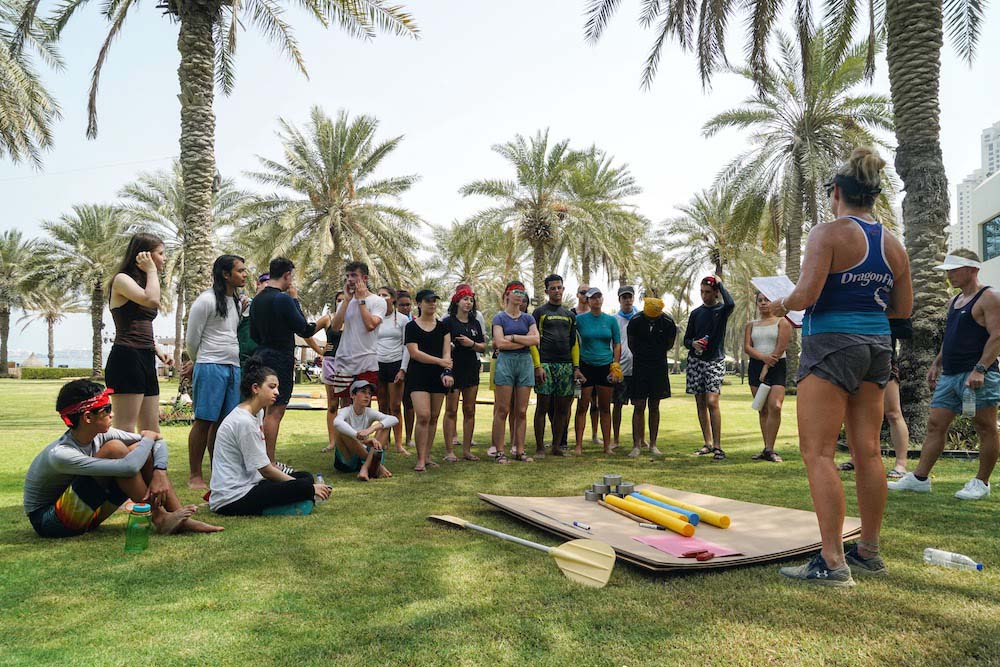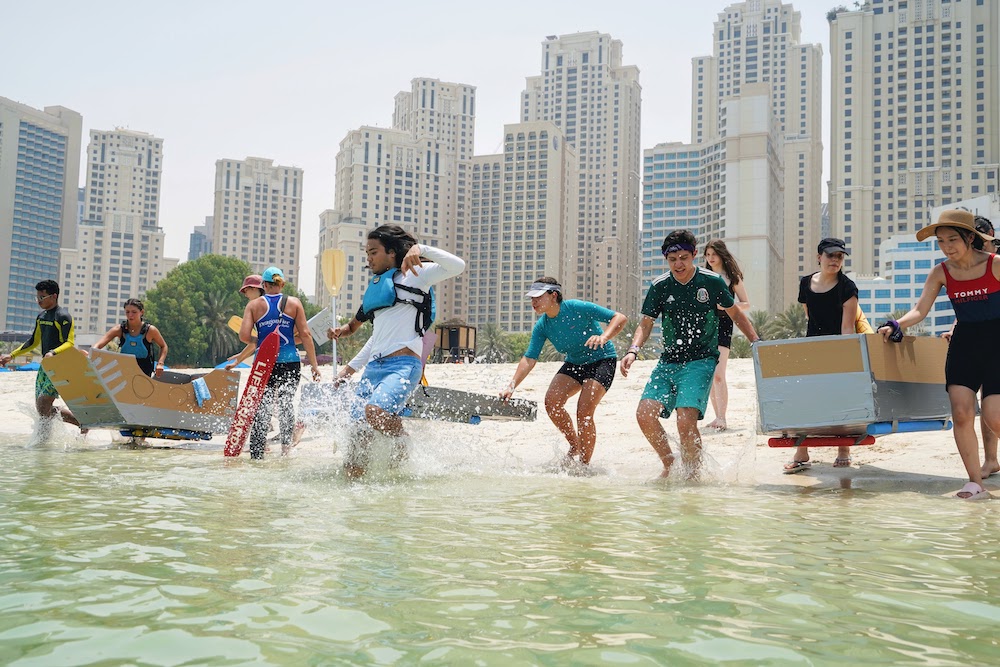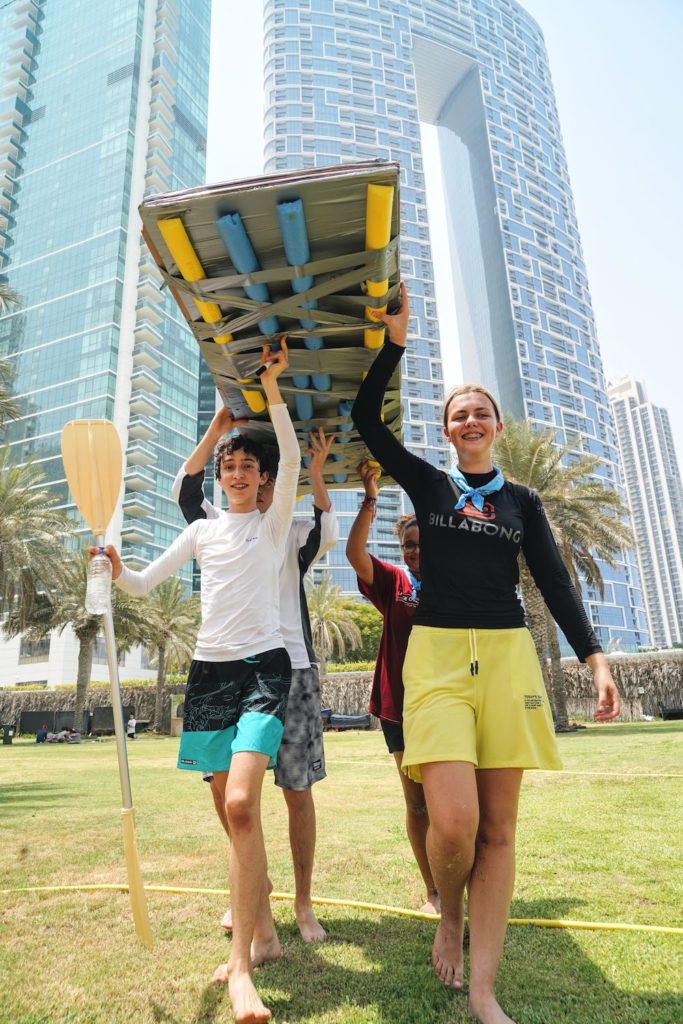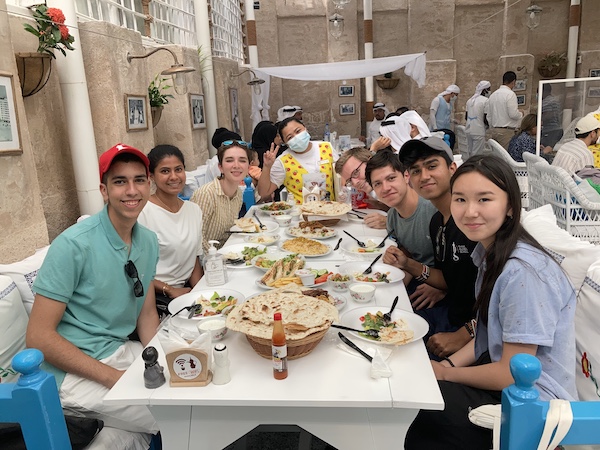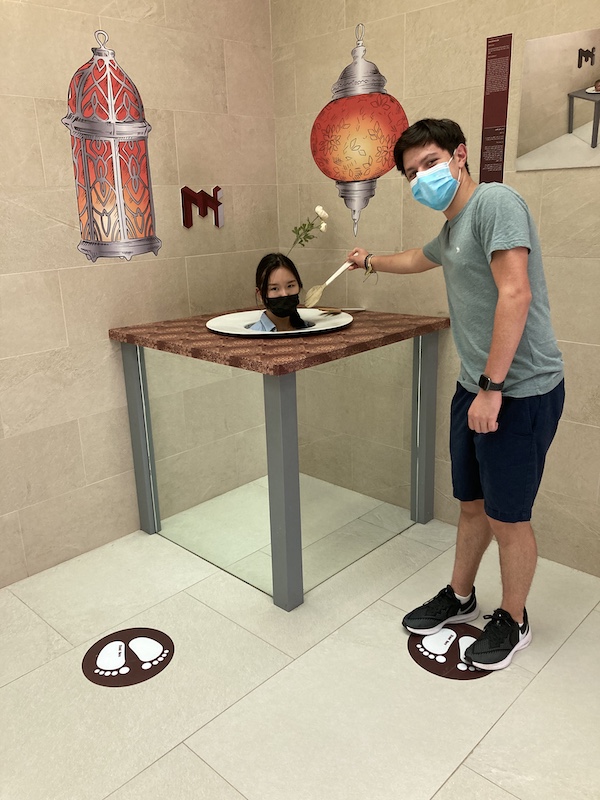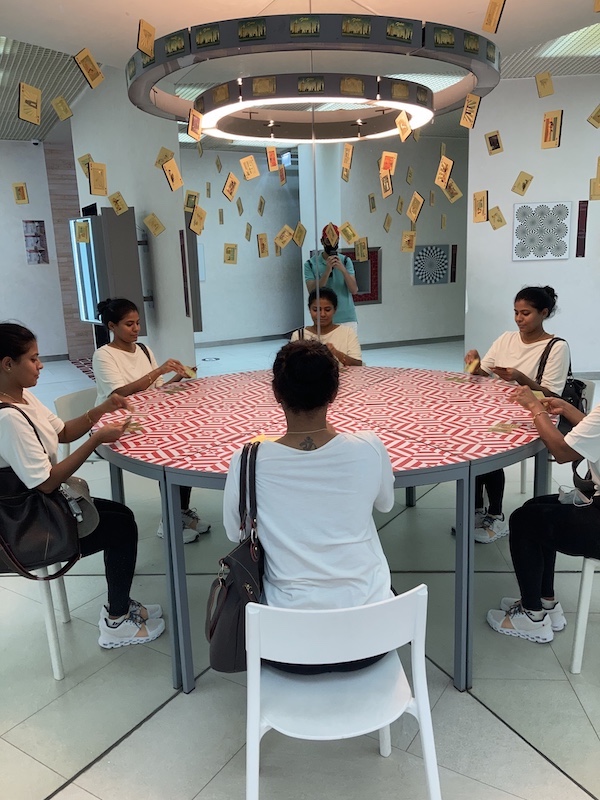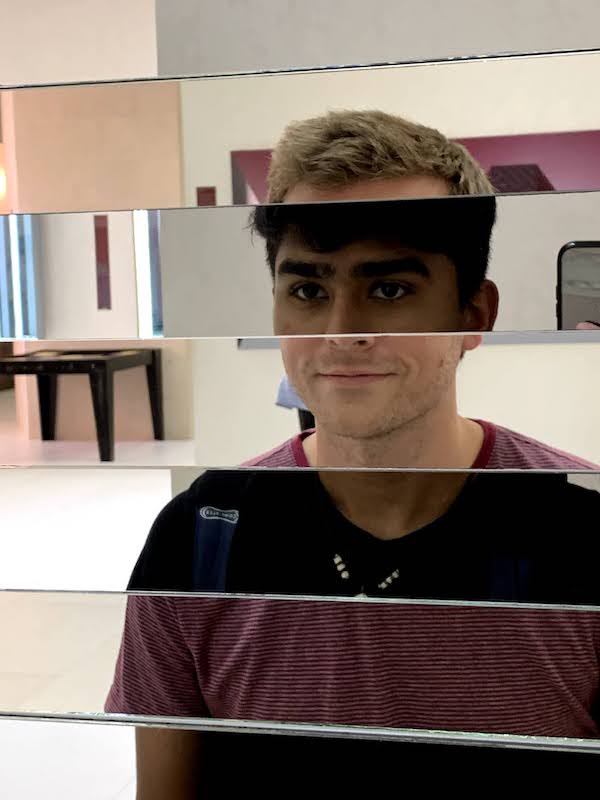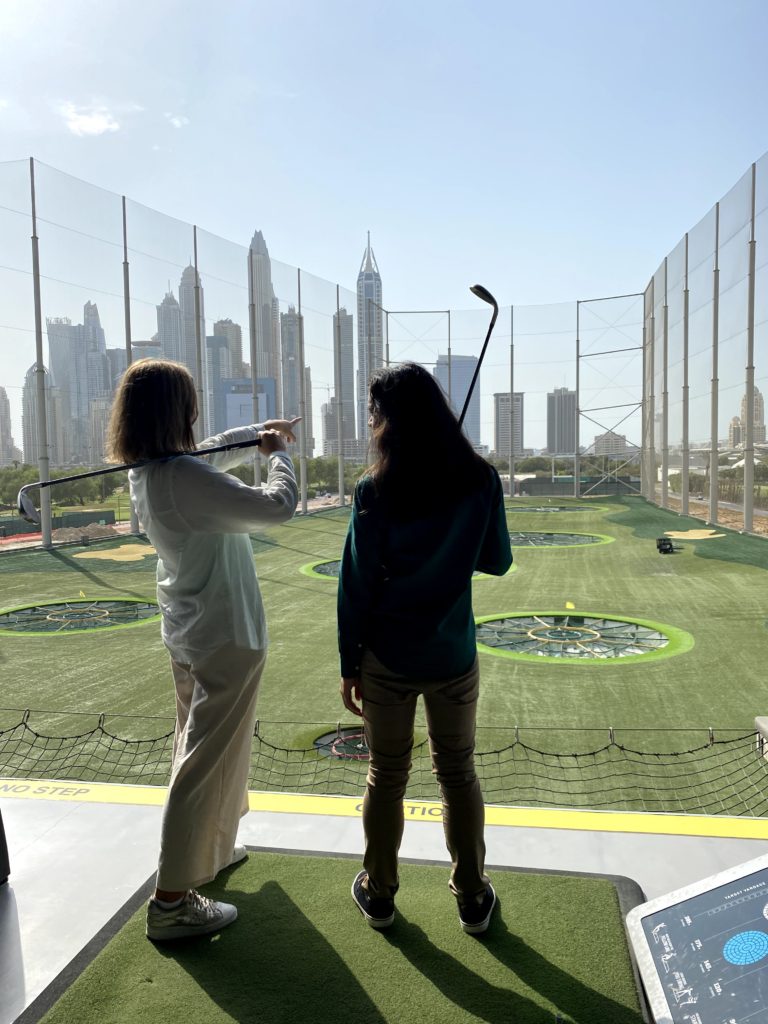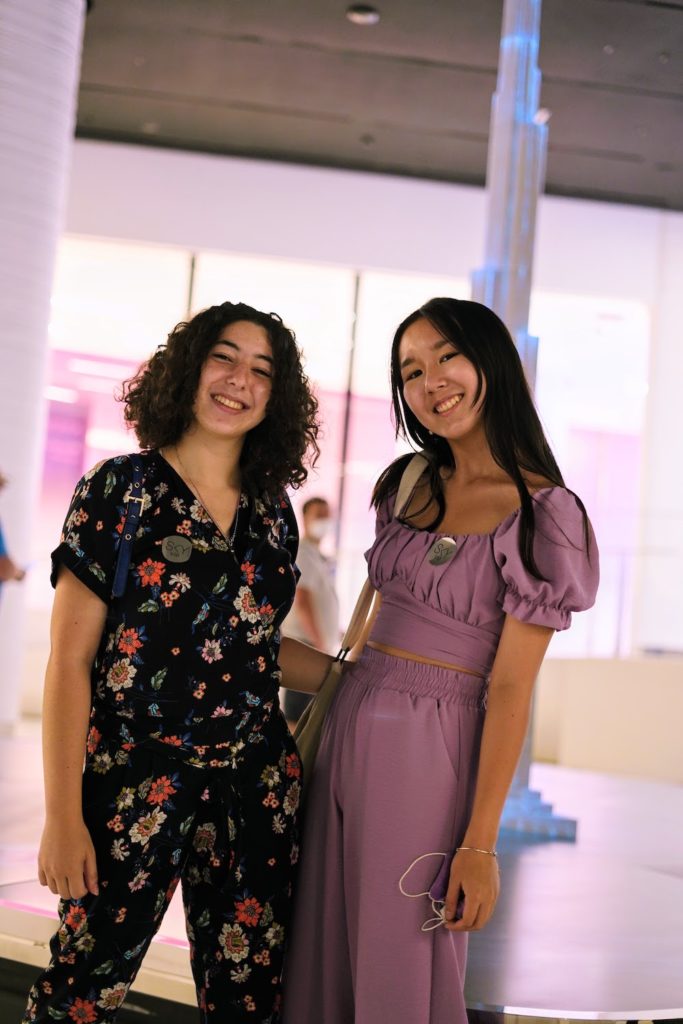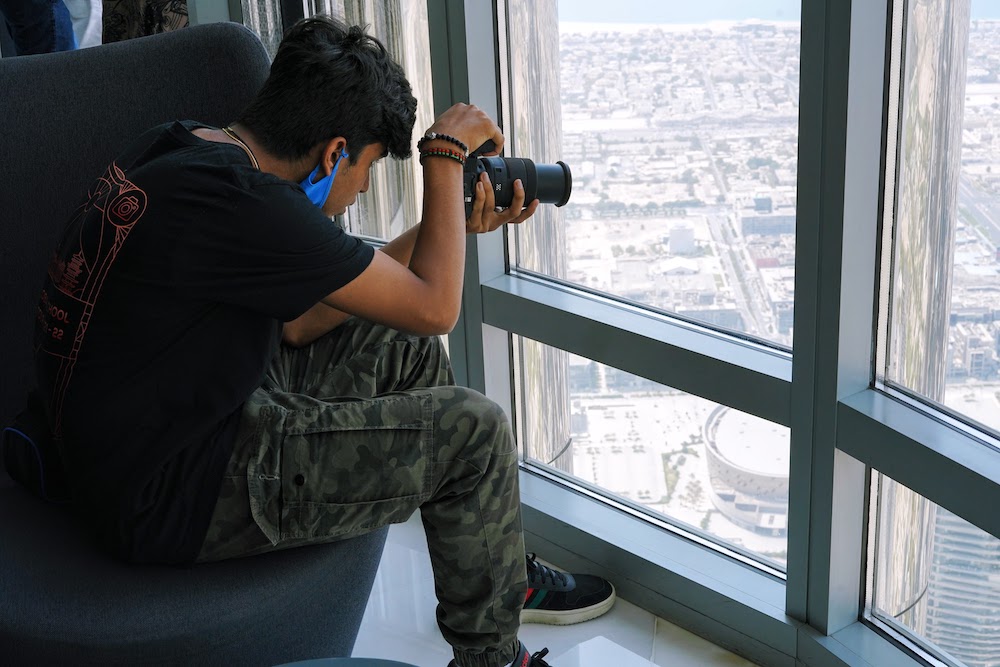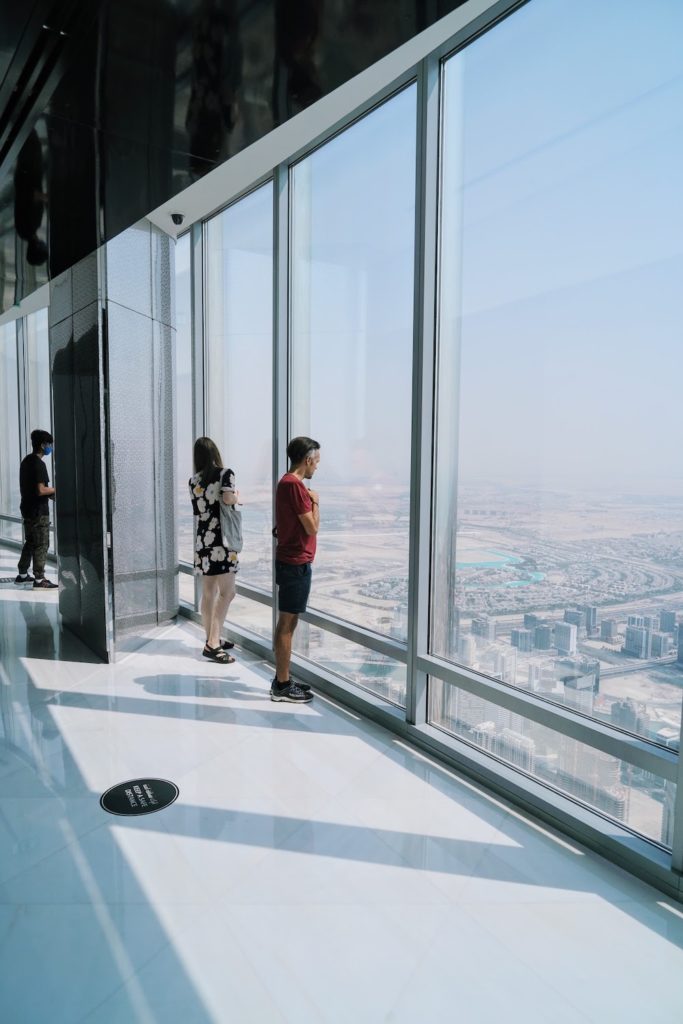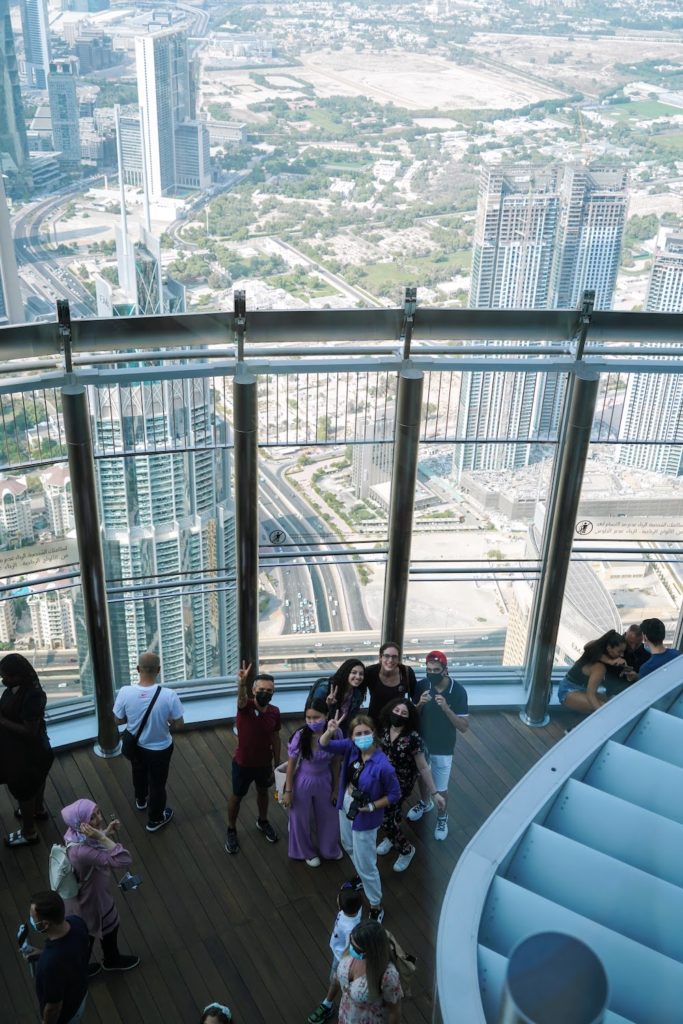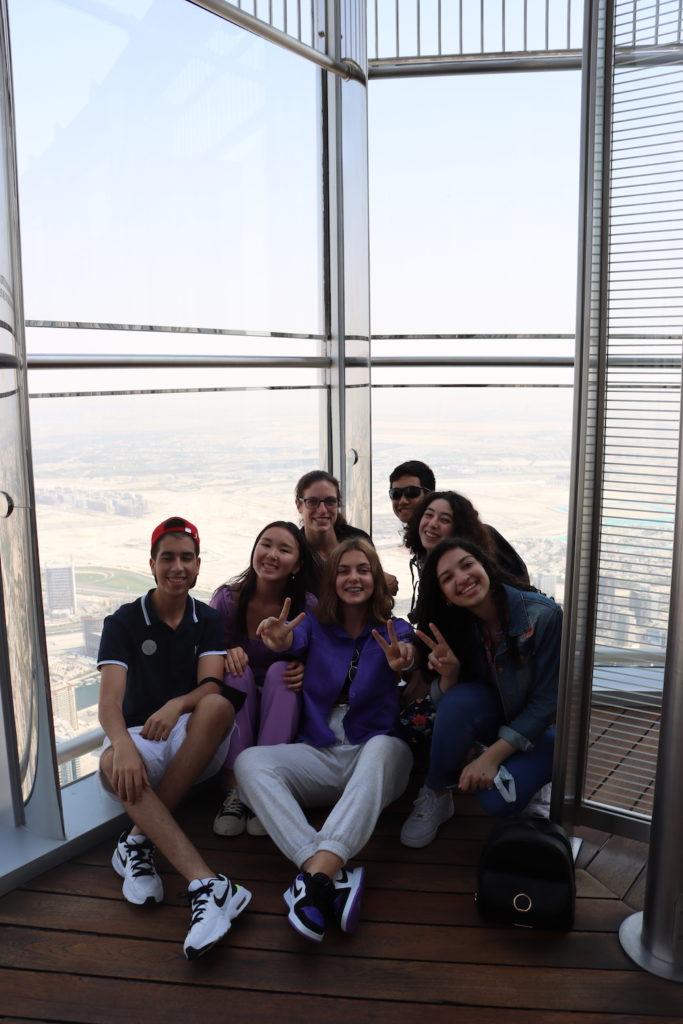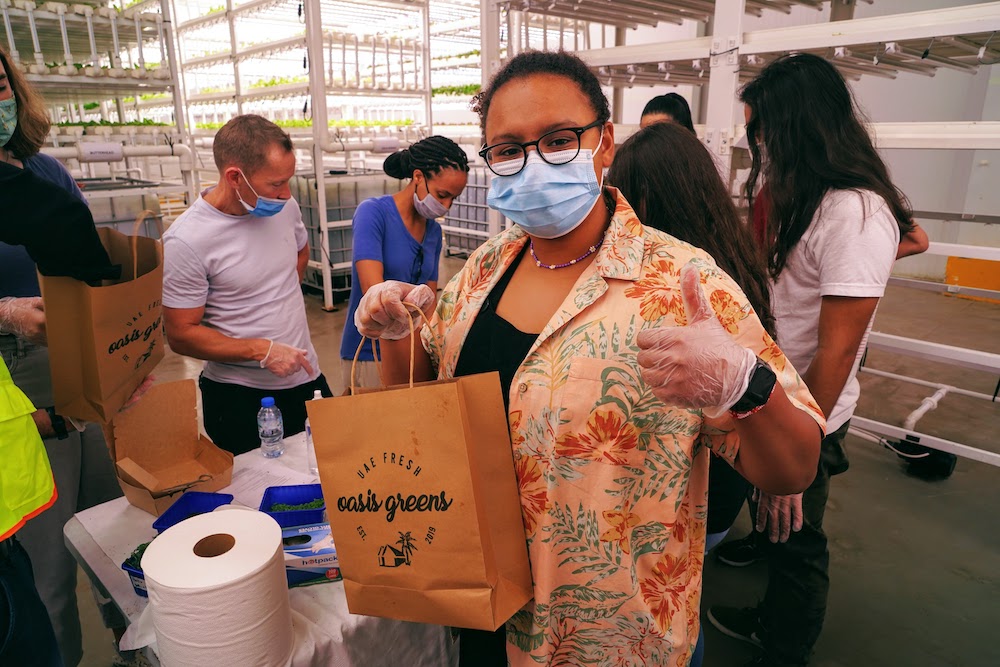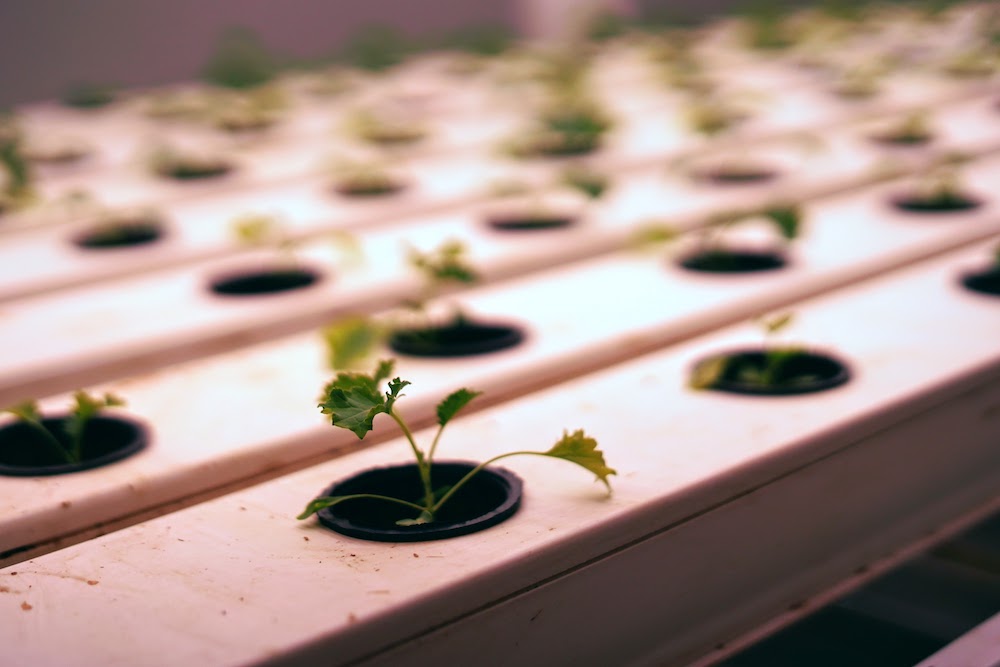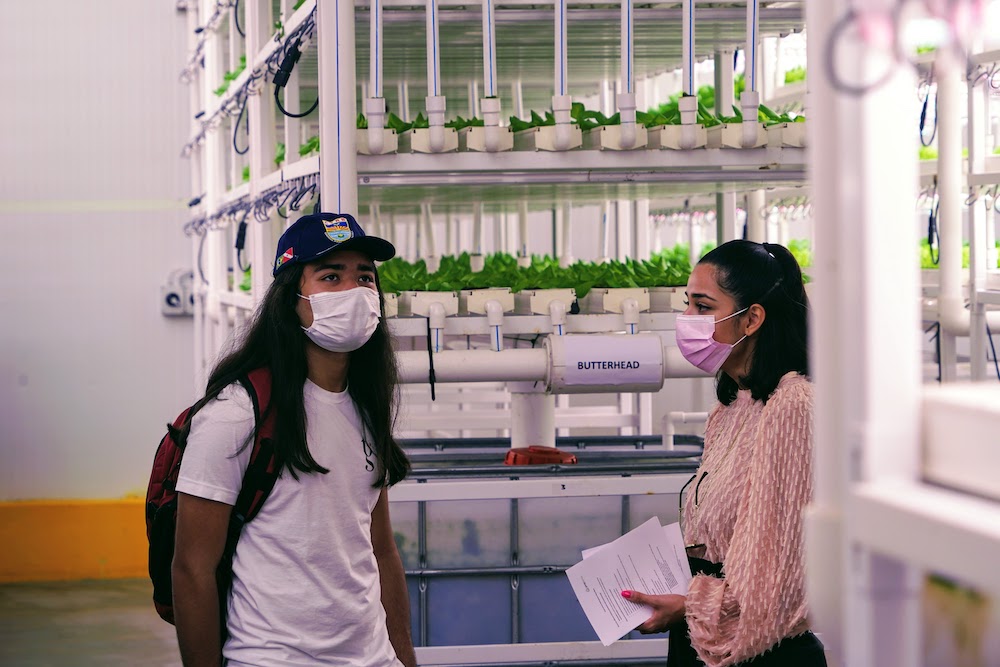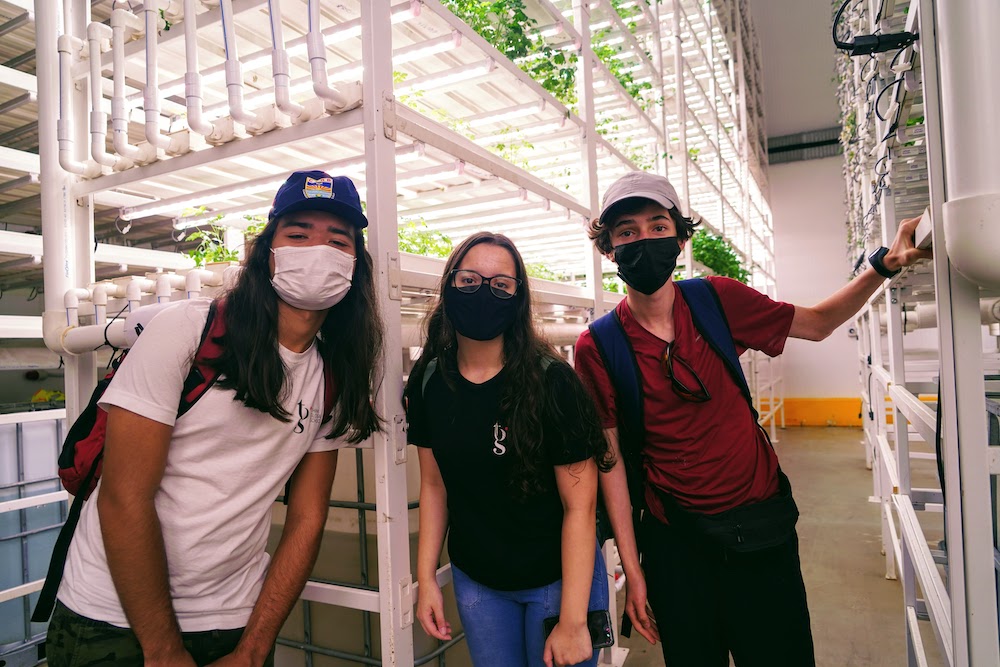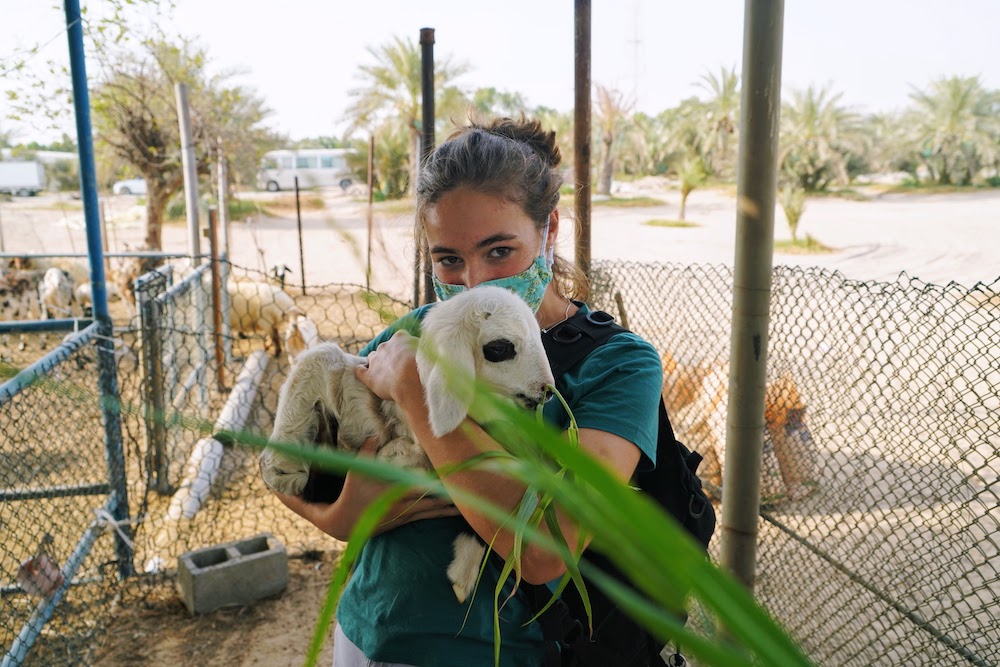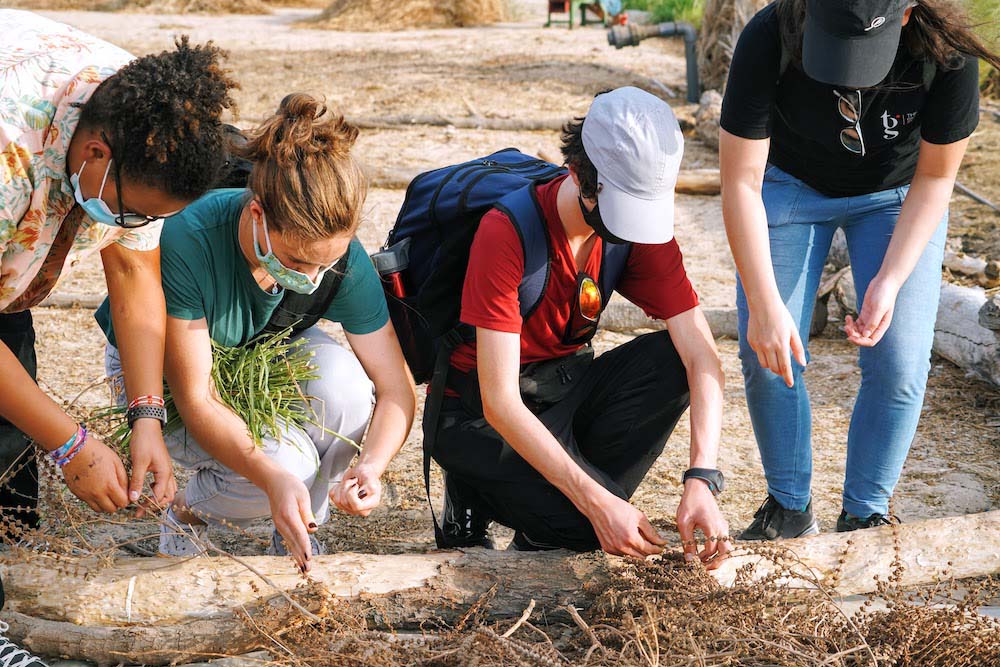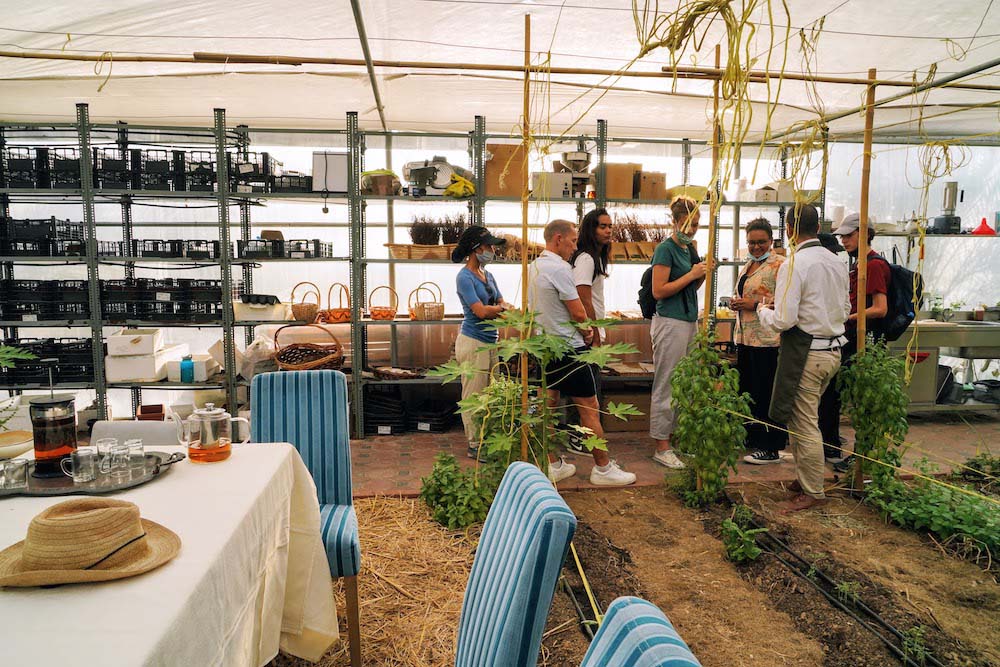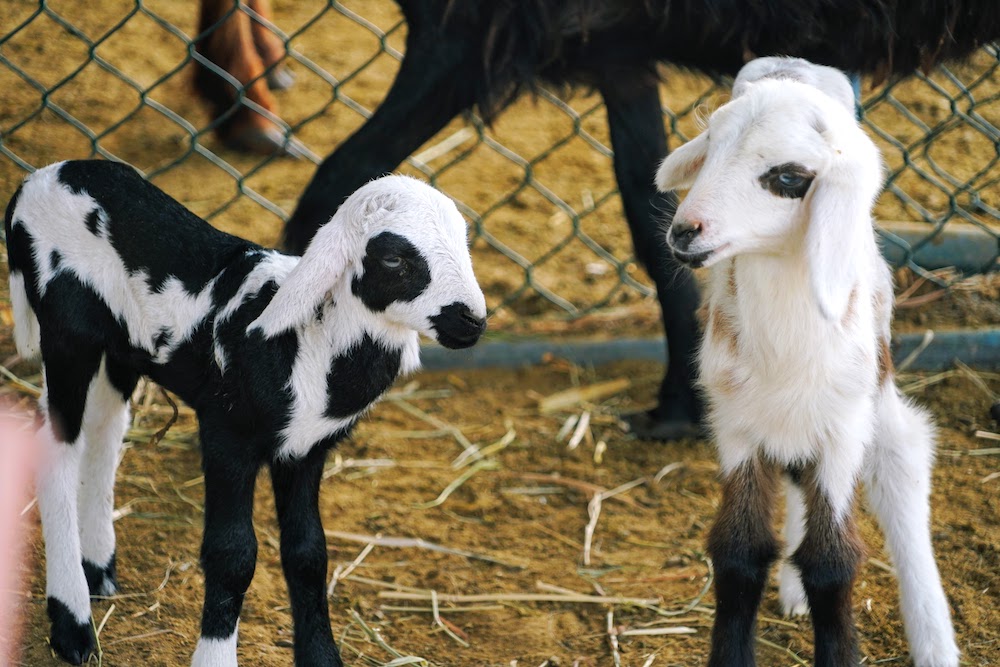As I write this, I'm waiting for our students to return from their weXplore, a five-day excursion that takes students beyond their host city for immersive cultural experiences. For the past two months, we as a school have called Maun, Botswana, our home. It's a small town on the edge of the Okavango Delta and, for many travelers, a doorway into Africa. But Maun is only one perspective, and it...
Read MoreI learned a lot during my first term at TGS, especially how to communicate effectively with the limited resources you have. The module I participated in exposed me to many things, whether it be learning or bonding with people. Most importantly, this term reinforced the fact that my decision to come to TGS was the right one. -Class of 2023 Student Aarushi A.
As a traveling high school, we are always prepping for the unknown. Months of careful planning go into each of our locations to ensure safe terms and extraordinary learning experiences. Sometimes, however, things come out of far left field that completely disrupt your operations — the COVID-19 pandemic being one such example.
Like most schools around the world, the 2020-21 school year at THINK Global School was conducted remotely, with the wellbeing of our students taking precedence over everything else.
It was a year of “new normals” marked by Zoom calls, online projects, and online club gatherings. And while it certainly differed from a typical year at TGS, the 2020-21 was a success by most accounts.
It was evident, however, that our community was ready for a return to in-person learning for the 2021-22 school year. So with the proper precautions in place, both our cohorts headed to Africa to resume learning firsthand.
Doing a module on-site is a much different and fun experience than online. Just thinking that going to museums, exploring the city, and speaking with local people is a “normal school day” is insane. I am so grateful to have the opportunity to learn and analyze information in such a fun and unique way. -Marily M., Class of 2023
CM1 Cohort
For our thirty CM1 students, this meant spending a term in Botswana, where they focused on exploring the country’s traditions, economy, political system, and ties to conservation and tourism. They did so by answering the following driving question: How can I demonstrate my learning and understanding of Batswana culture and society through storytelling?
CM2 Cohort
Our CM2 students, on the other hand, headed to the Arabian Peninsula to kick off their year, specifically in the United Arab Emirates.
Sun-soaked and teeming with opportunities, the United Arab Emirates offered everything we were looking for during a COVID-19 term. Close to 89% of the population have received at least one vaccination dose, while 78% of residents are fully vaccinated. Due to this and other precautions, the daily cases numbers in the UAE have been steadily declining since their high mark in January of 2021.
The United Arab Emirates is also highly conducive to project-based learning. Our host city was Dubai, and few cities in the world have seen as much development in such a short time. Established as a fishing village in the 18th century, a combination of factors including the discovery of oil, visionary leadership, strategic trading, and investments in all aspects of its infrastructure helped propel Dubai into the powerhouse that it is today.
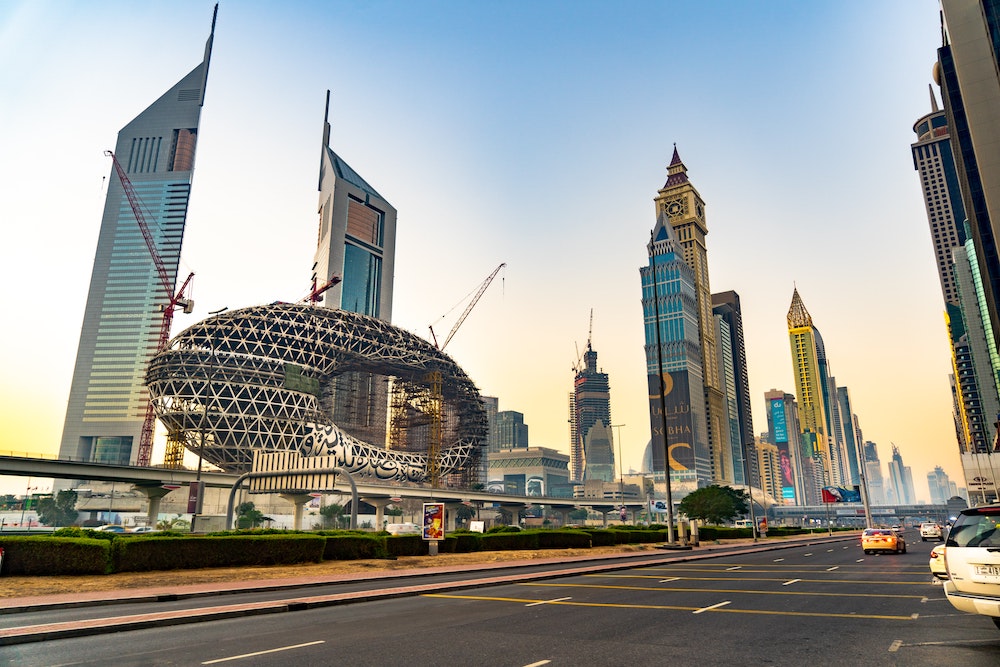
Dubai is filled with many high tech buildings. Image Credit: Darcey Beau
Our CM2 students used their time in-country to familiarize themselves with the environmental, economic, cultural, and political factors that shape the United Arab Emirates. They did so through extensive firsthand experiences, including field excursions, conversations with guest speakers, and community events. Each occurrence allowed students to leverage their analytical abilities and walk away from the term with a more complete sense of their host country.
Rite of Passage
One of the first important activities students undertake at THINK Global School is embarking on a Rite of Passage. The Rite of Passage introduces students to our community culture by having them embark on a rigorous multi-day experience filled with team-building activities. During this shared time together, they learn what it means to care for one another and uphold the tenets of TGS.
This year, our CM2 Rite of Passage tested our students’ physical skills through a series of rope courses, scavenger hunts, and boat-building contests. Students also engaged in several sessions in how we work and learn at TGS.
Rite of Passage Days 1 and 2
The CM2 Rite of Passage began with an overnight camping trip to Aventura Park. Designed to bring a taste of nature to the city, Aventura Parks is a rope course and obstacle course located among the Ghaf trees of Mushrif Park.
Upon their arrival at the park, students set up their tents in preparation for the overnight stay. They discussed with park staff what they should expect and what they’d like to focus on during their team building and physical activity exercises. Once the sun went down, the games, competitions, and ropes courses commenced! Arduous but satisfying, the evening’s activities tested our students’ physical, mental, and emotional grit.
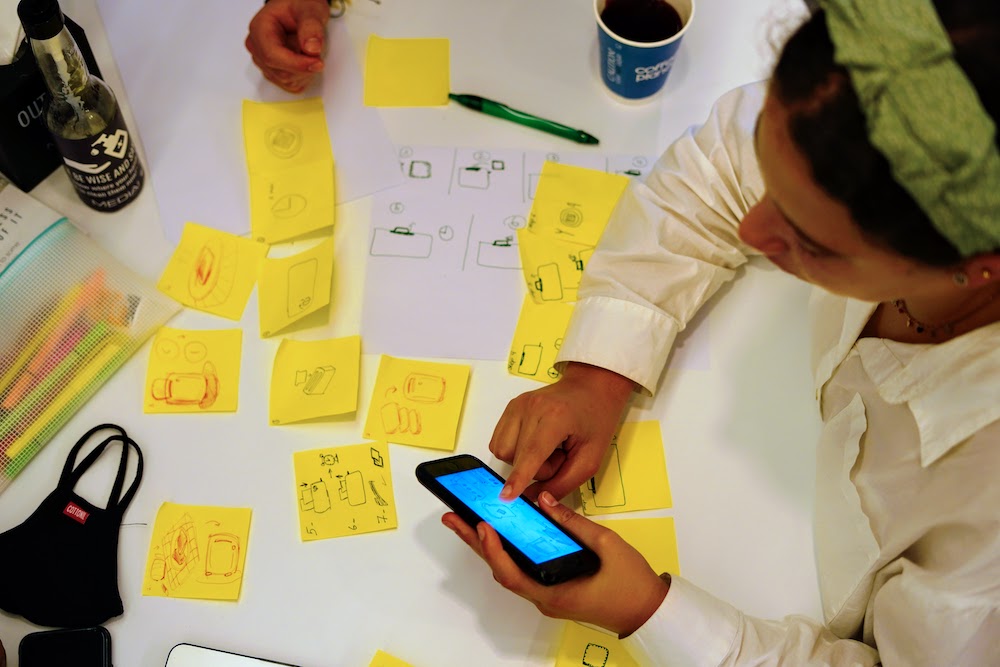
Students engaged in a design-thinking exercise as part of their ROP
The next day, as a change of pace, students participated in a design-thinking challenge. In small groups, they were tasked with explaining how to make toast WITHOUT talking. The activity encouraged them to celebrate and overcome differences in approach, think laterally, and be intentional about involving the staff and students working remotely this term.
Rite of Passage Days 3 and 4
On Day 3 of the Rite of Passage, students competed in a scavenger hunt encompassing all of Dubai. Organized by local event planner Rush-A-Way, the scavenger hunt served as a team-building opportunity as well as a fast-paced tour of the city.
Buses took small groups around to some of Dubai’s landmarks to participate in games such as finding specific stores in a mall. Many students found the fountain show in front of Burj Khalifa, the last stop on the tour, as being most memorable.
Our students and staff working remotely had some teamwork fun as well. Lead Educator Chung Man Chan organized a virtual escape room from Singapore’s Fun Empire, in which participants were challenged to save their village from a werewolf attack.
Following their scavenger hunt, students stopped by recreation space TEPfactor for another test of their fitness and problem-solving skills. Students competed in sixteen challenges spread across four categories: skill, patience, fitness, and logic. Students had a blast during this full-on team-building activity.
Dragon Boat Building Competition
To close their Rite of Passage out, students participated in an exciting dragon boat activity. Although dragon boating originated in China, it has become increasingly popular in the United Arab Emirates in recent years. The sport usually involves between eight and twenty people rowing in unison, using their strength and speed to beat their opponents.
Students were grouped into teams and provided with all the necessary materials to construct their dragon boat. They then worked against the clock to build a buoyant vessel according to their design specifications. After completing their design, each team presented what they’d created before putting it to the ultimate test: a race in the water against the other groups.
Following the dragon boat race, students drove out to the Dubai Desert Conservation Reserve for a scenic wildlife drive inside vintage 1950’s Land Rovers. Quite the cap to a fantastic day!
Advisory Dinners
During their first full week in Dubai, CM2 students also joined their advisory groups. Advisory groups play a key role in the Changemaker Curriculum, as they are a way for our educators and students to promote and practice our core values.
Through guided advisory discussions, educators and students aim to foster our community’s mental, emotional, and physical growth. These discussions often occur during informal dinners and other events that encourage students to get to know one another better. During their time in Dubai, some advisory groups went to an escape room, some went golfing or bowling, and some visited the Museum of Illusions.
A Look At Our Project-based Learning Modules
Instead of simply attending classes and listening to teachers lecture, students at THINK Global School learn through firsthand experiences and a curriculum rooted in project-based learning.
The Changemaker Curriculum places a heavy emphasis on skill mastery, student autonomy, and finding purpose. By maintaining a student-driven philosophy, we can better connect with the places we visit and the people we meet. If you are unfamiliar with project-based learning, you can learn more about it here.
Project Modules
During a standard term at THINK Global School, students select from one of three project modules to focus on during their time in-country. Each module offers students the opportunity to build their knowledge in a content area by answering the project’s driving question.
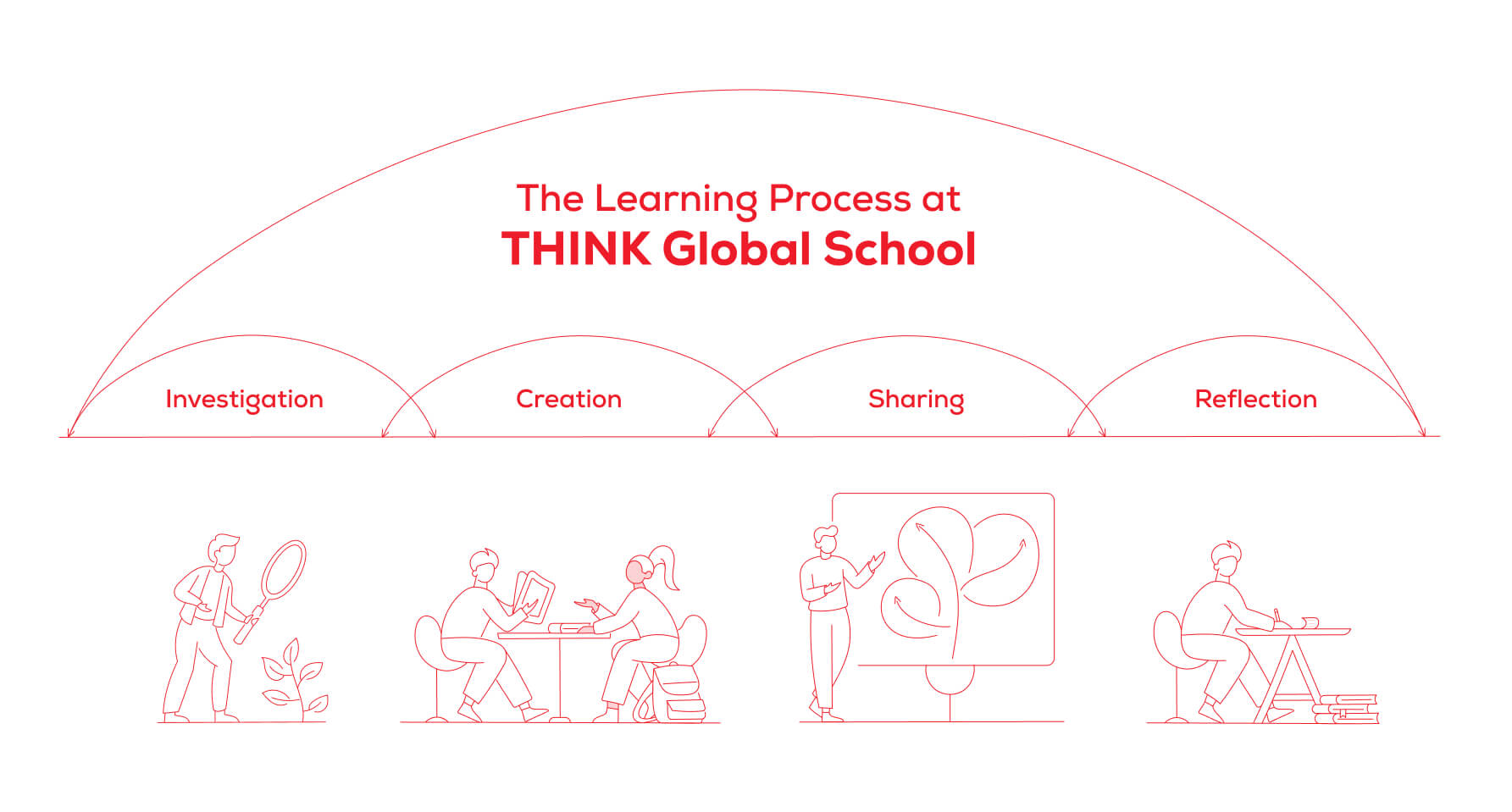
Each module is constructed with learning targets in mind, representing the areas of knowledge students can expect to build skills in. Projects with an engineering theme like this term’s Towering Skyscrapers module, for example, are heavy in math and science learning targets. Creating Dubai Stories, which focuses on storytelling, stresses learning targets like visual literacy and human geography.
Learning this new way of creating and developing projects based on firsthand experiences is life-changing, and I enjoyed doing it. Learning to investigate and tell the story of Dubai by curating a virtual museum was a fun way to tell the world about its magic and how interesting this place is. – Gabriel T. Class of 2023
Each module presents drastically different content areas for our students to explore. Offering a variety of modules provides two main benefits: 1) students can explore content and learning targets that are new to them, and 2) they can master skills in areas they are passionate about.
Personal Projects
Besides participating in a teacher-led module, students also work on at least one personal project per term. Personal projects are an opportunity to pursue passions and explore all sorts of content areas. Each personal project is created by our students and approved by our educators. Like our teacher-led modules, personal projects are based on learning targets, which helps set out learning expectations from the start.
United Arab Emirate Modules
You can learn more about our Term One modules and view student outcomes below.
Towering Skyscrapers Module
Driving Question: How can I use engineering principles and the design cycle to create a paper tower that is strong and aesthetically pleasing?
Module Overview: The United Arab Emirates is home to the tallest building in the world as well as many other unique and impressive architectural structures. In the Towering Skyscraper module, students investigated the design and engineering processes involved in the construction of Burj Khalifa and other structures in Dubai.
Burj Khalifa Visit
As part of the module, students visited the world’s tallest skyscraper, Burj Khalifa. Participants had a chance to find inspiration for their own towers by ascending to Burj Khalifa’s observation deck, where they had unparalleled 360° views of Dubai, aka “the city of the future.”
Old Town and Palm Island Excursion
For their second excursion, participants in the Towering Skyscrapers module spent a day exploring Dubai to gain a better understanding of the city’s diverse range of architecture.
Students started the day in Dubai’s historic Al Fahidi quarter. Strategically placed and dating back to the 19th century, Al Fahidi is a maze of winding streets, shops, and residences, all of which provide a strong sense of 19th century Middle Eastern architecture. Students learned how the buildings were constructed from sand, stone, and palm fronds and used wind towers known as barajils to circulate wind through homes and keep residents cool (a necessity given the smoldering heat).
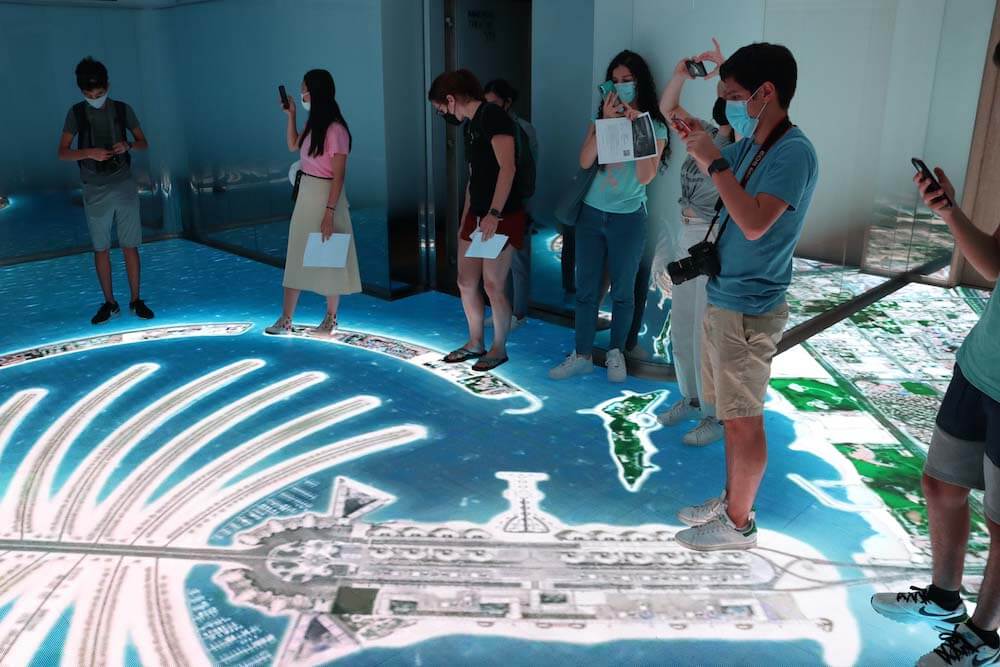
THINK Global School students learn about UAE architecture at The Palm Tower
To conclude the day, students paid a visit to Dubai’s man-made Palm Islands, a stunning artificial archipelago that was constructed in the 2000’s as a way to attract global interest in Dubai. Students ascended to The Palm Tower’s 52nd floor where they had sweeping views of the islands, the Arabian Gulf, and Dubai’s dramatic skyline.
Project Outcomes
For their final project, participants used engineering principles and the design cycle to construct a paper tower that is durable and matches the aesthetic appeal of the UAE’s many glittering towers. Learning targets for the module included geometry, scientific concepts, and the creation of an original piece.
Dhruv and Diego’s Tower
For their project, Dhruv and Diego designed a paper tower built using only tape and paper so it could hold a golf ball and withstand wind. The students’ tower resembled the shape of a cactus and featured origami triangles that mimic a scorpion’s tail. The top floor contained a small decoration on the outside as well a big ball on top.
During this module, I learned a lot of things behind the skyscrapers and all of the process that goes behind such as the planning and the setbacks. It was surprising how we could build some really strong towers just with paper and tape but it was challenging to analyze what could be the best approach. I realized that I want to do something with architecture or engineering after TGS. -Diego M. Class of 2023
Sara G.’s Tower
For her project, Sara G. created a tower made entirely from sticks. Drawing inspiration from structures like the Shanghai TV Tower, her structure’s base consisted of four sticks and the rest of the tower was a form of straws with lots of sticks intertwined.
Through this project, I learned a lot about the engineering principles behind the construction of skyscrapers. While building my paper tower, I learned how important it is to think outside the box. This project was really exciting for me, and it was a nice way to start projects in TGS. -Class of 2023 Student Sara G.
Curating Dubai Stories Module
Driving Question: How can I curate the story, past present, and future, of Dubai in a creative way using digital platforms?
Module Overview: The United Arab Emirates is a fascinating place with a rich history and unique perspectives. It is also a region that outsiders often view with misconceptions and misunderstandings. As students explored the region’s past, present, and future, they were tasked with identifying accurate historical events, cultural transitions, and economic phases. With these elements in mind, they set about creating their final product: a curated digital museum that could be shared with the public.
Minahil and Seb O.’s Project
For their term project, Minahil M. and Seb O. created a virtual museum that shares the story of Dubai’s trade and economy over the years, including its establishment into a central business hub and tourism location, especially in relation to the Dubai Expo 2020.
Aarushi, Olivia, and Marily’s Project
Aarushi, Olivia, and Marily’s online museum focused on politics in the United Arab Emirates. Through their excursion to Old Dubai, visits to various museums, and own research, they analyzed the United Arab Emirate’s governmental system, constitution, current events, and future.
Their final product, an online museum, was created on Wix and contains information about the government systems, historical events, political leaders, and plans and strategies that shape the UAE. Their online museum also included a few unique features, including a like button beside every picture and a live chat setup.
The Future of Food Module
Driving Question: How can we create an informative, data-based magazine to analyze the future of food in Dubai?
Module Overview: Dubai currently sources 85% of its food needs internationally. The little food that is produced locally involves a staggeringly high amount of energy and water due to Dubai’s particular environmental challenges, including soil aridity, high temperature, and lack of precipitation.
In this module, students examined the intricacies of sustainable food production and consumption in Dubai. Students explored various solutions, including converting desert into arable land, creating the world’s largest vertical farm, and reimagining restaurant menus. Through the consideration of many different perspectives, participants investigated and expressed their vision for the future of food in Dubai.
For their final product, students created an op-ed, argumentative paper, or creative writing piece that explored the intricacies of sustainable food production by looking into the region’s strengths, weaknesses, opportunities, and threats. You can find these writings below.
Oasis Greens Visit
As part of their module, CM2 students visited the UAE’s newest local farm, Oasis Greens. Given its desert environment, the UAE has typically had to rely on other countries to provide 80% of its food. Oasis Greens is looking to upend that by using hydroponics to grow organic greens in Dubai. Oasis Green’s business model offers the people of UAE something new: farm-fresh produce that is harvested and delivered on the same day, free of pesticides and farmed with 90% less water. A big thank you to Oasis Green and Founder Nikita Patel for showing our students something extraordinary growing in the desert.
My Farm Dubai Visit
In addition to the hydroponics farm, CM2 students in the Future of Food module got a wider view of future-focused farming by visiting an organic farm called My Farm Dubai. Conversations with Founder Mohammed Aissaoui centered around the farm’s sustainable methods, its avoidance of pesticides, and its usage of old seeds without genetically modified organisms (GMOs). Students started their excursion by naming a lamb Robin (after student Robyn A) and getting a hands-on lesson in old seeds. They continued on as Mohammed showed the group several organic products produced on the farm. After planting some of their own okra, radish, green beans, broccoli, and parsley, the students, Educators Christine and Andy, and Onsite Administrator & Media Specialist Matt made fresh salads and pasta and ate dinner as the sun went down. Thank you to My Farm Dubai and Mohammed for the experience!
Where Next?
For the second term of the 2021-22 school year, our CM2 students will be returning to Dubai for a term centered around the World Expo 2020. Years in development, the World Expo was created to bring people together, build a better world, and shape the future. All three of our modules will involve visits to the Expo and embody similar themes of harmony and innovation.
